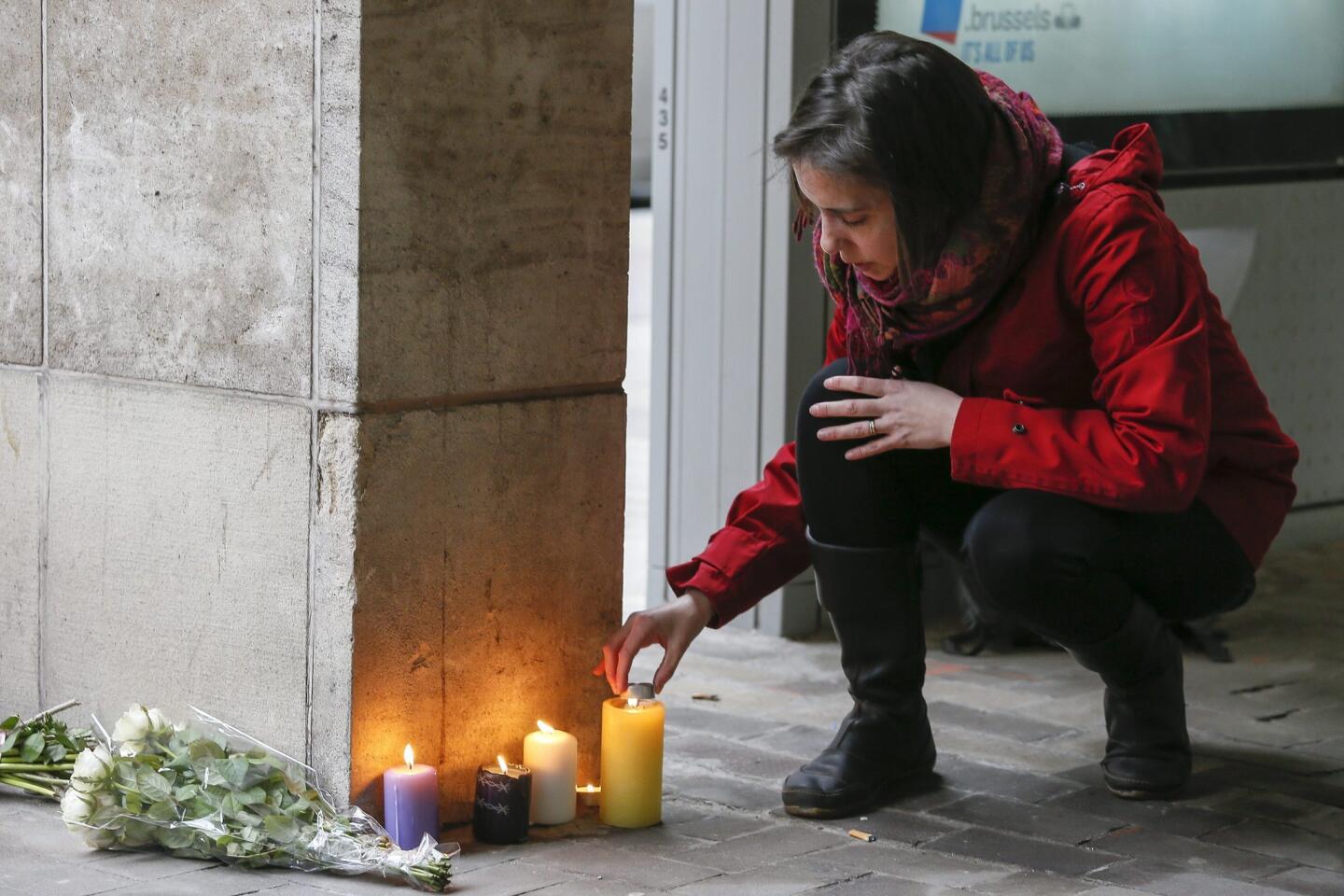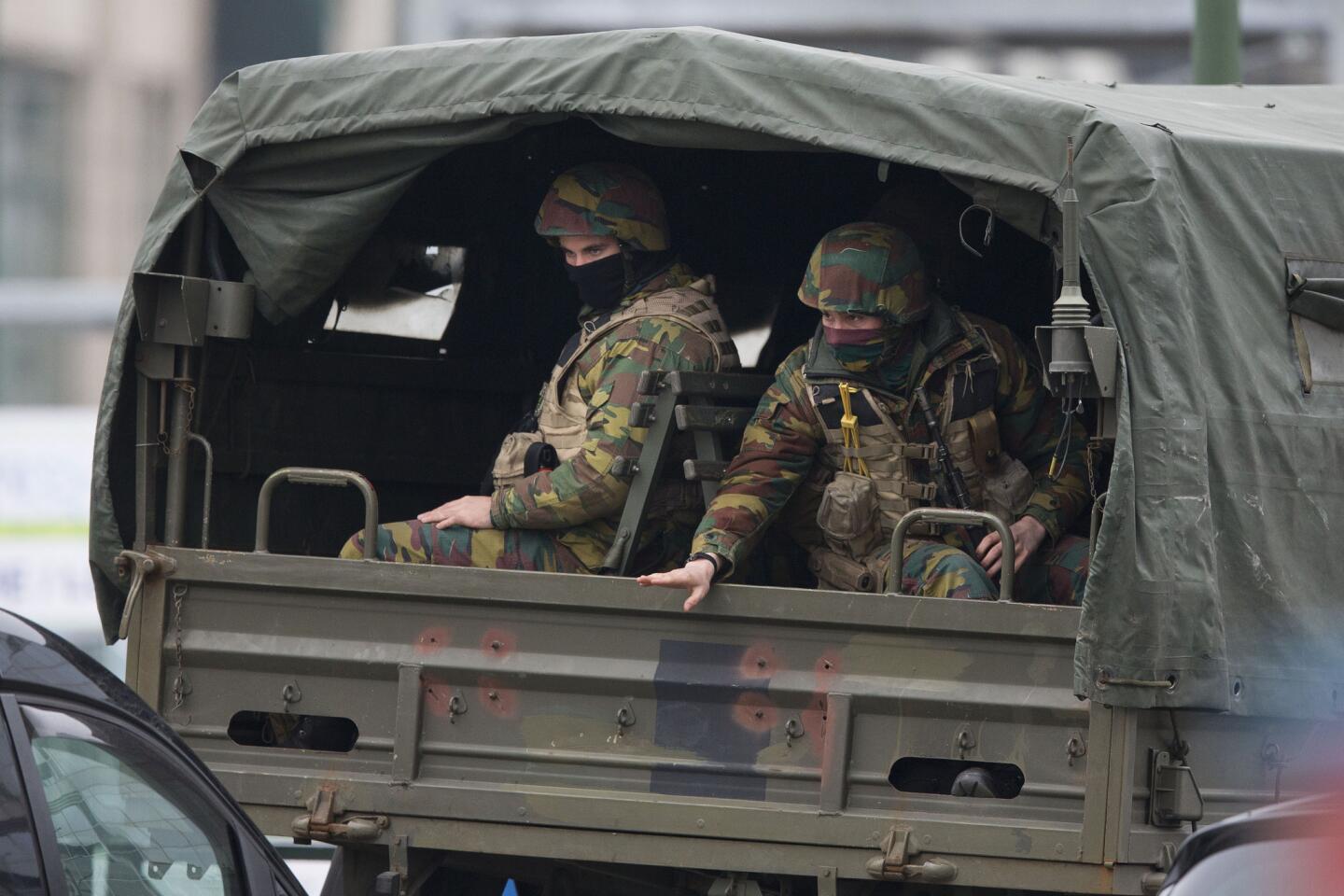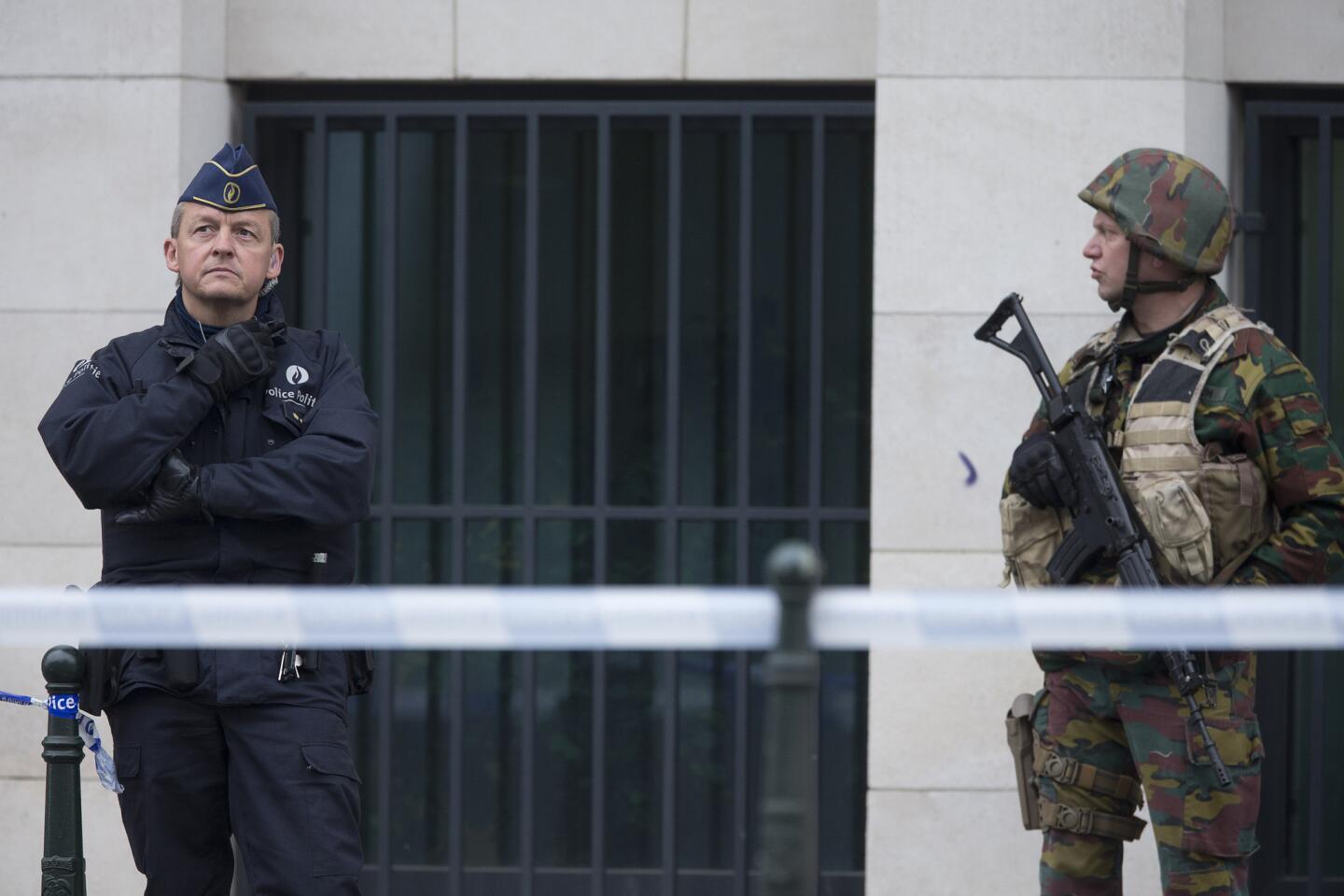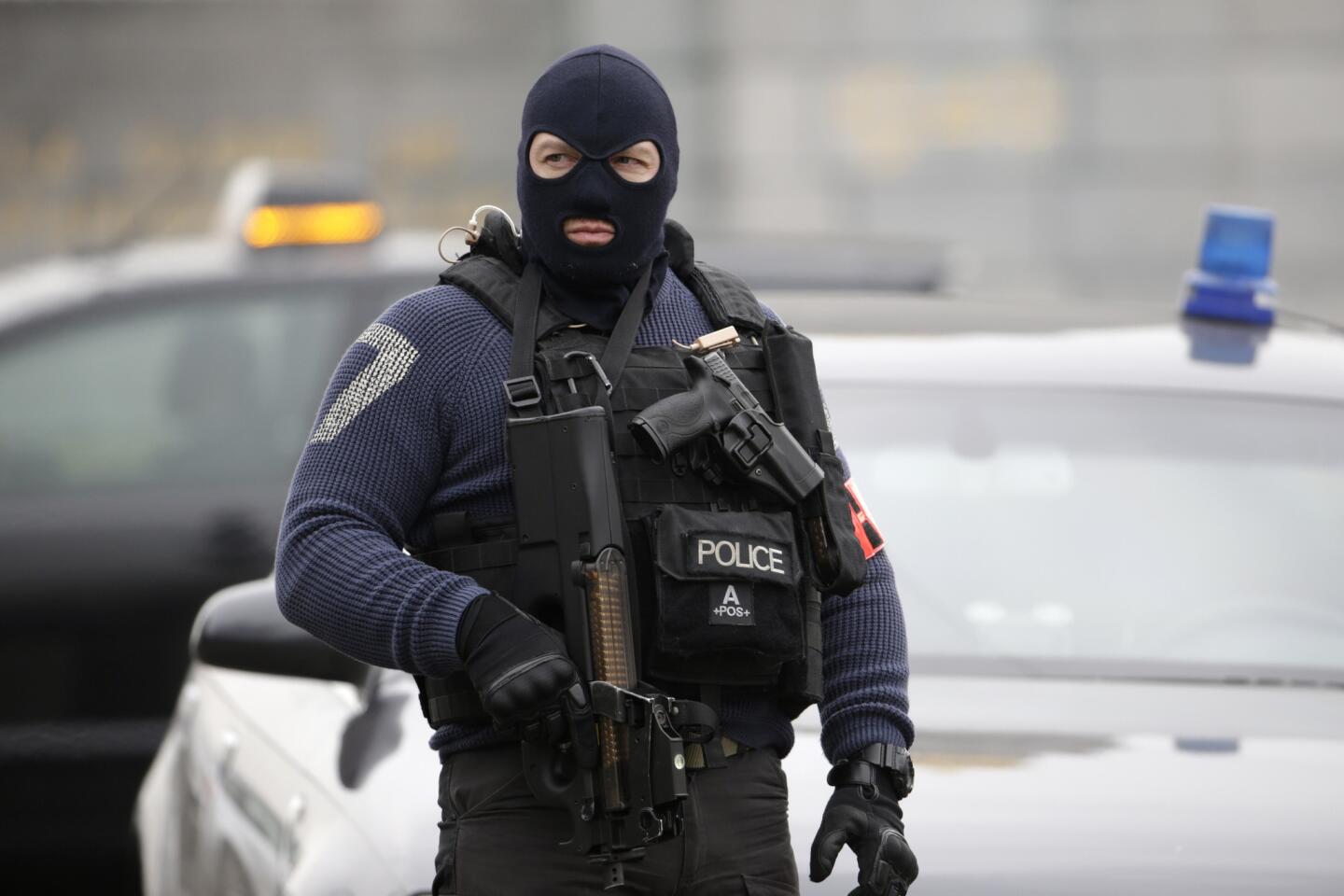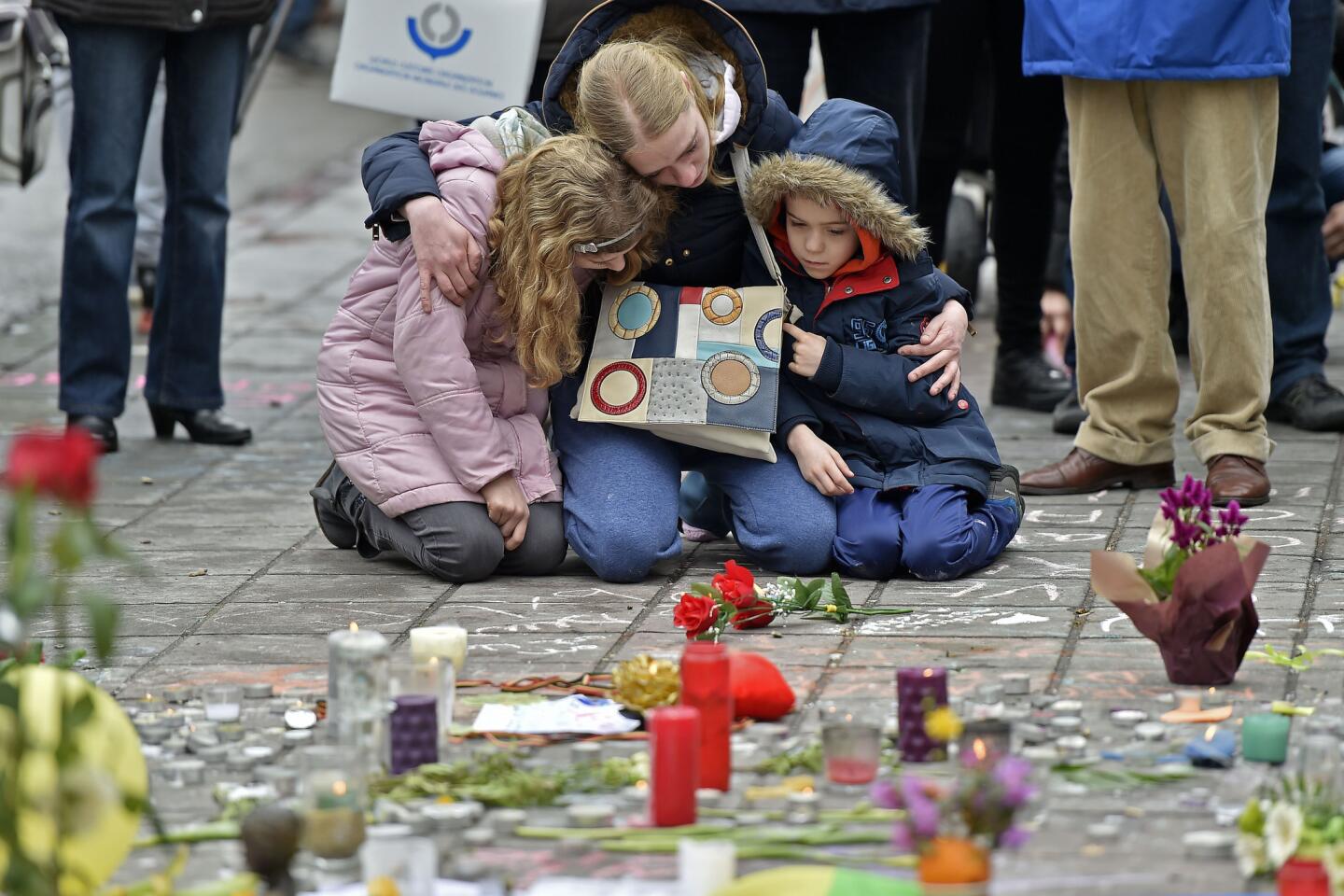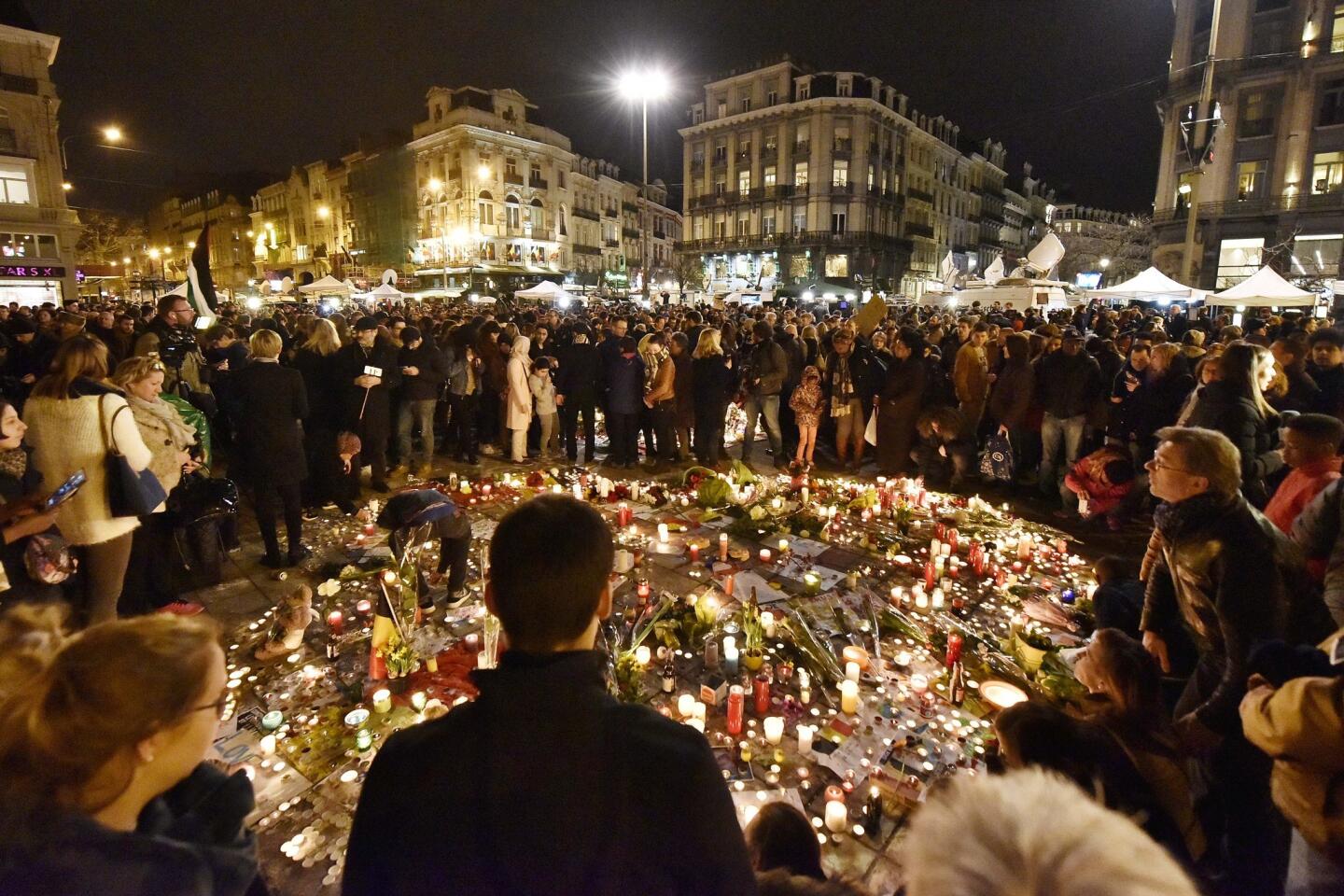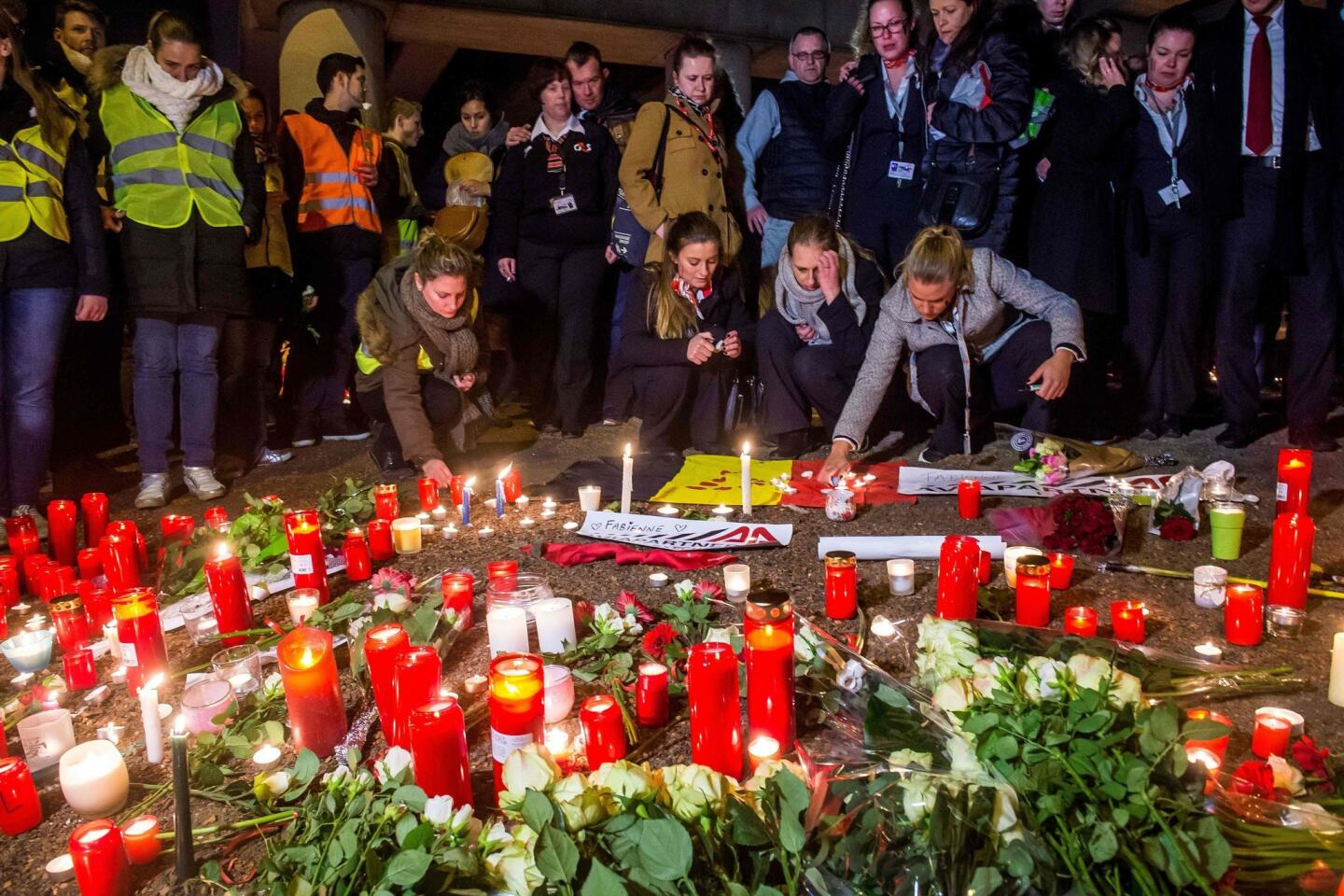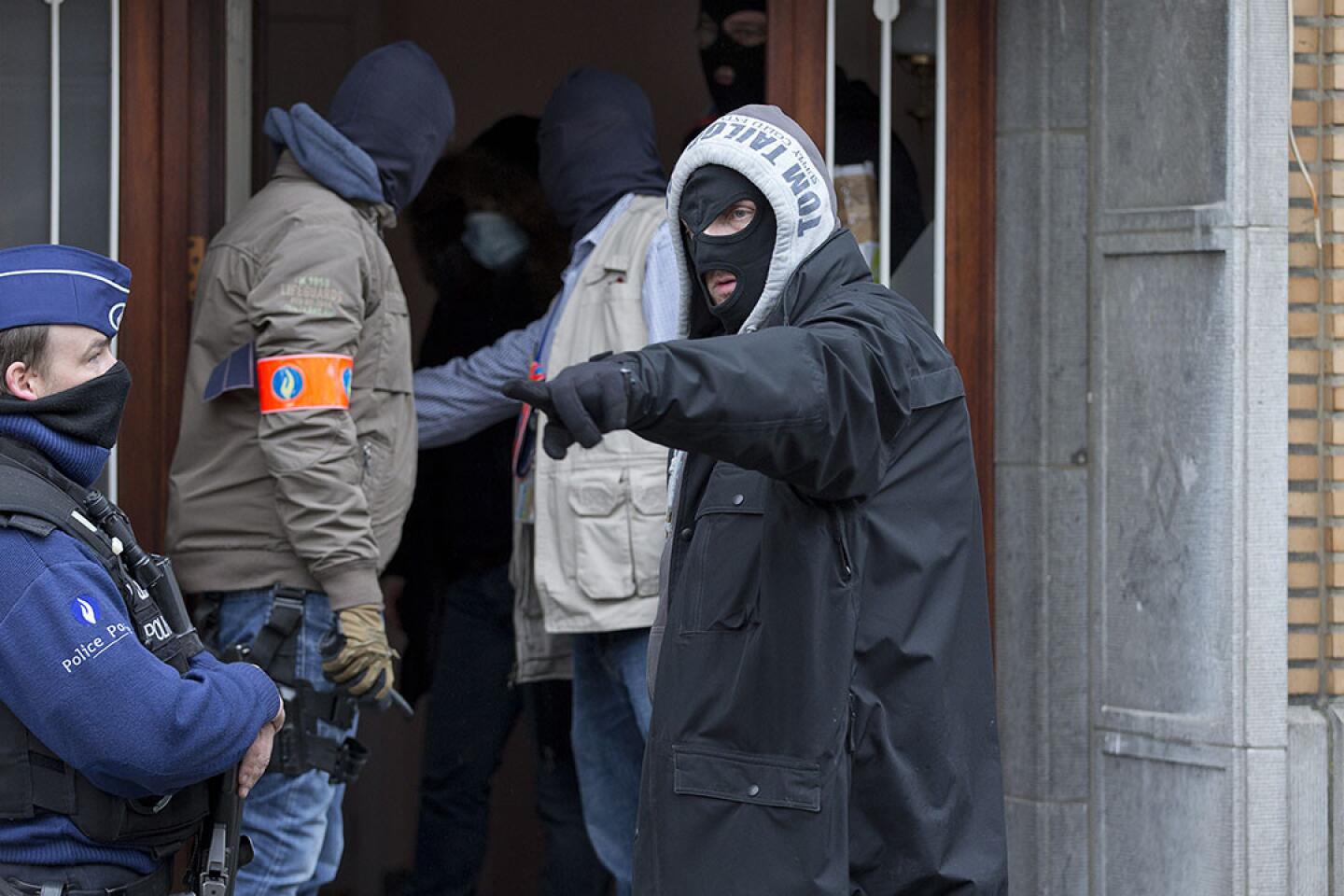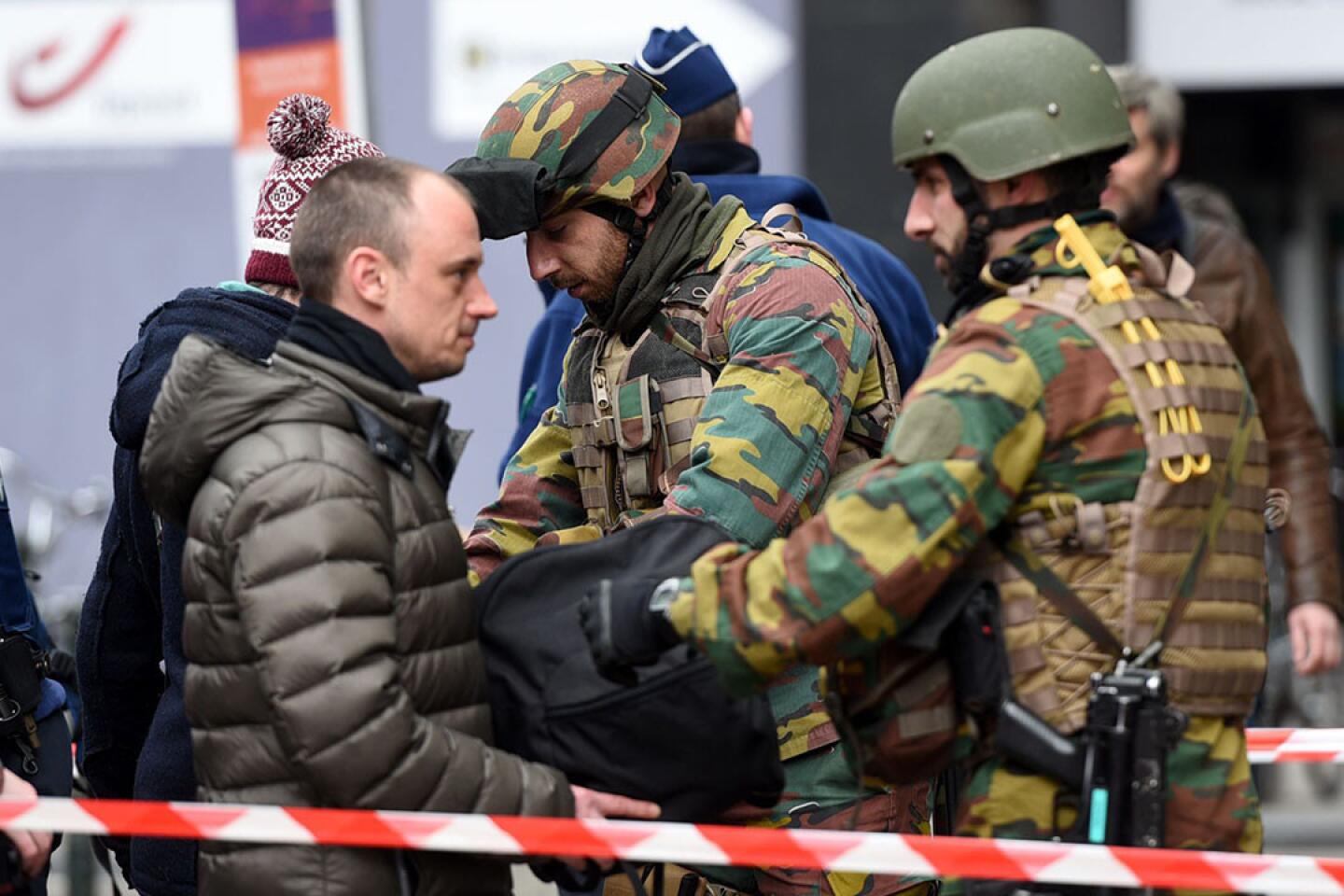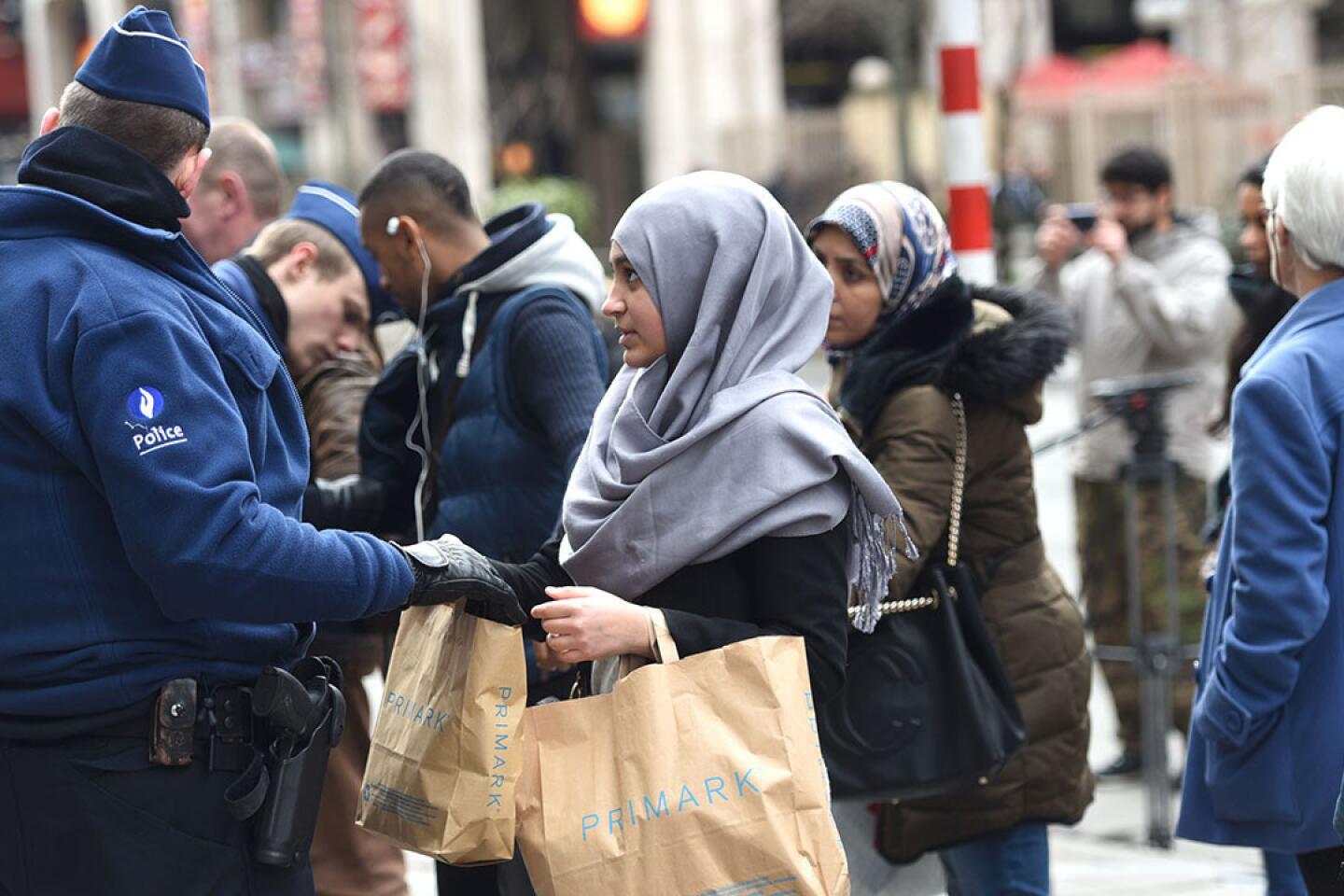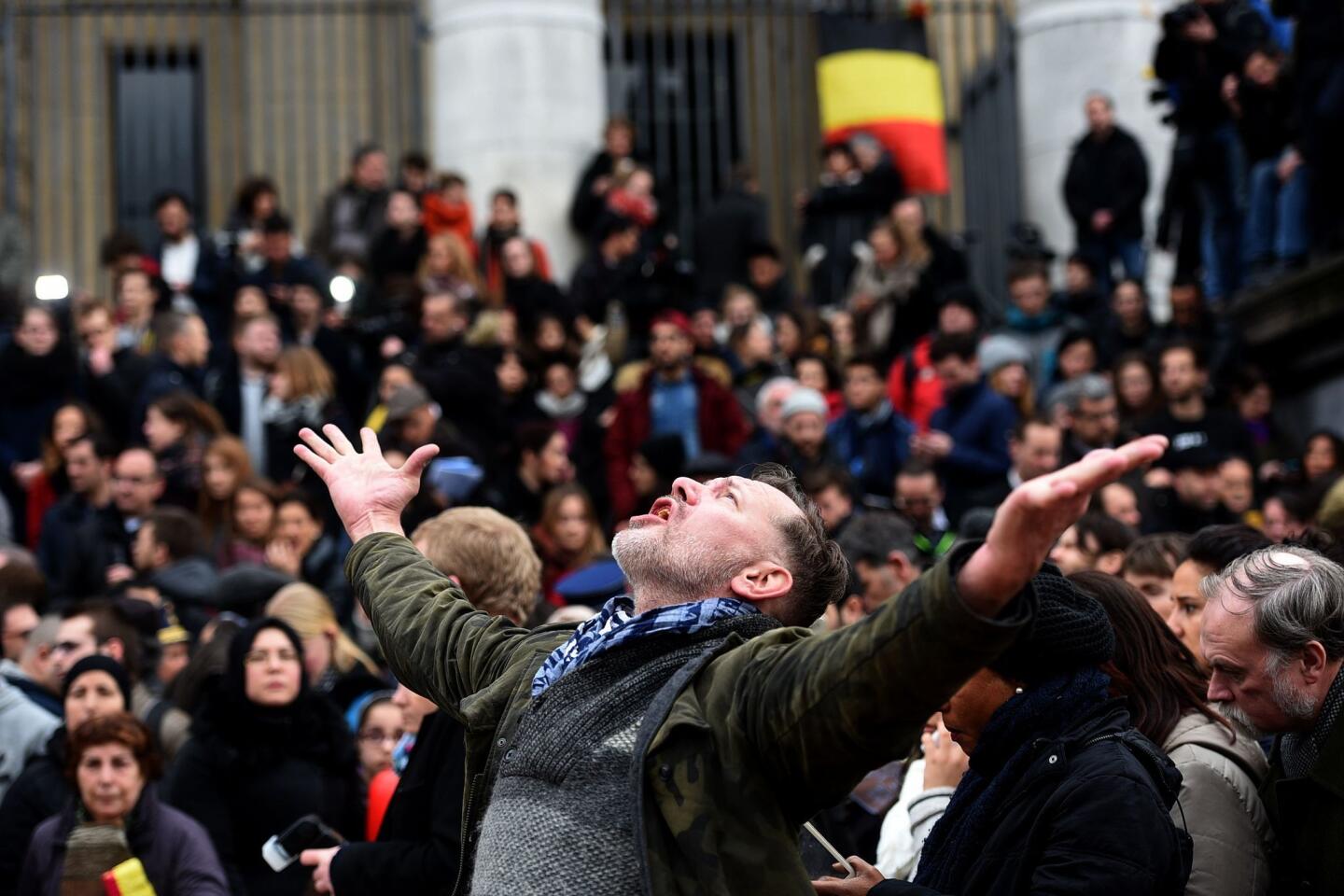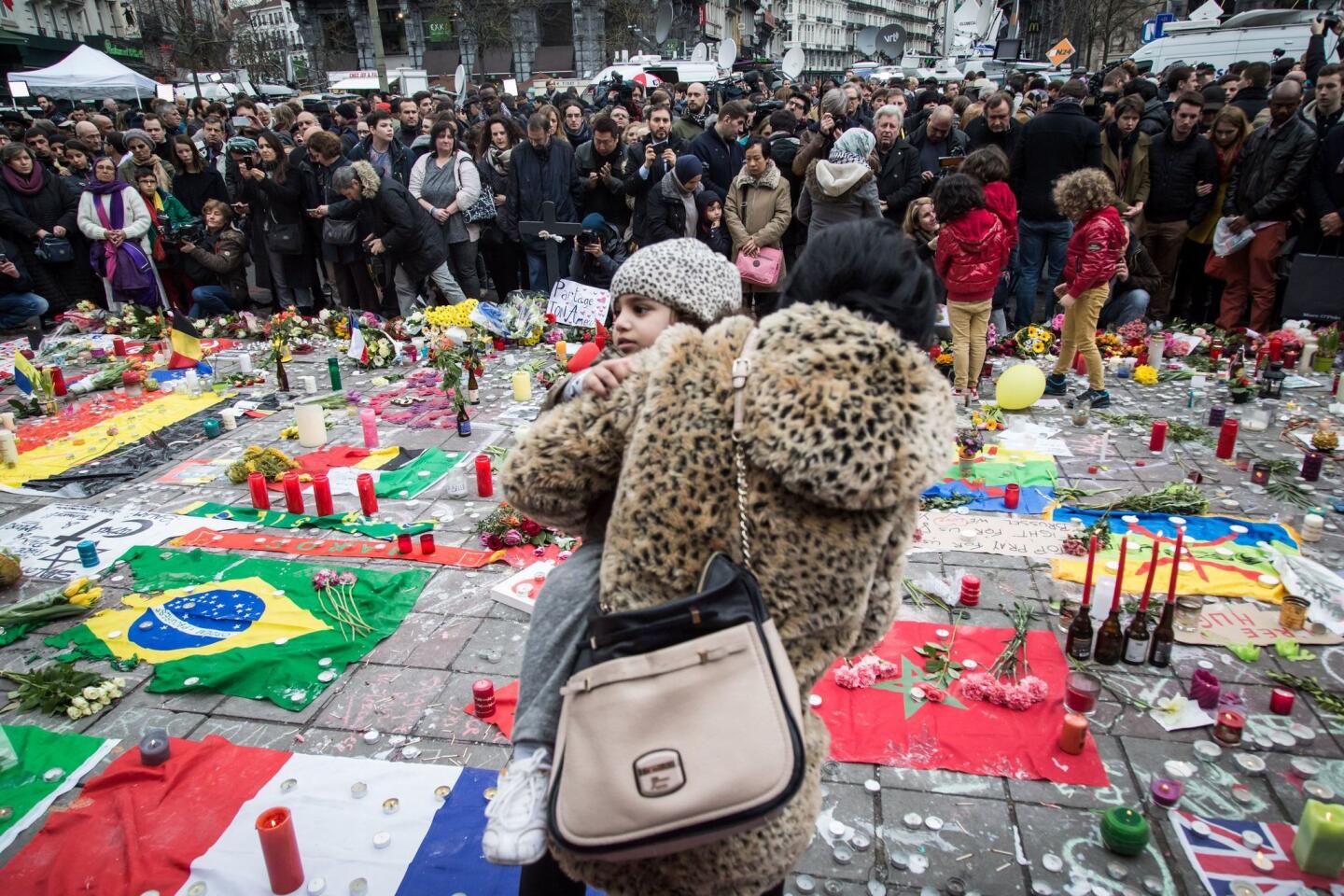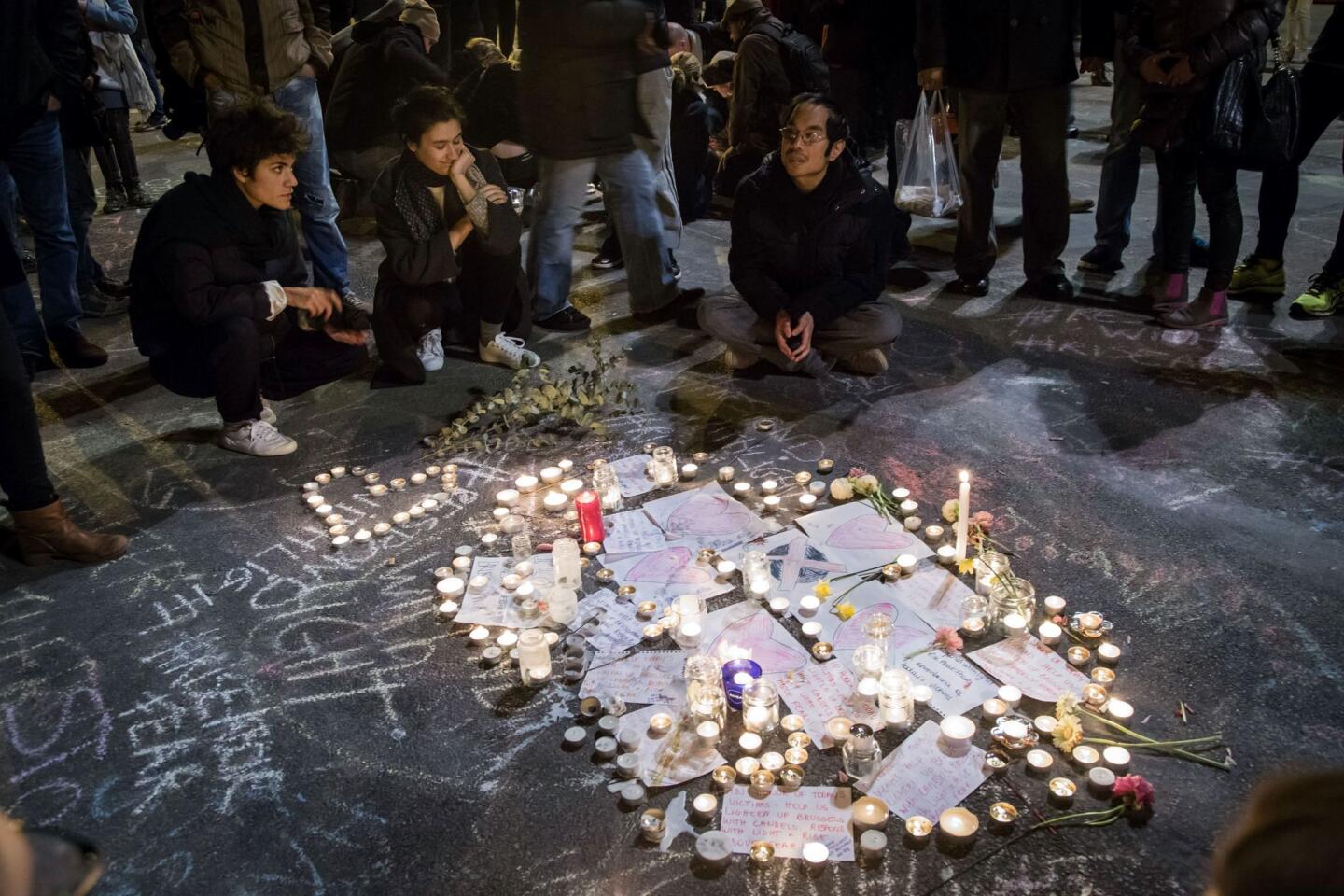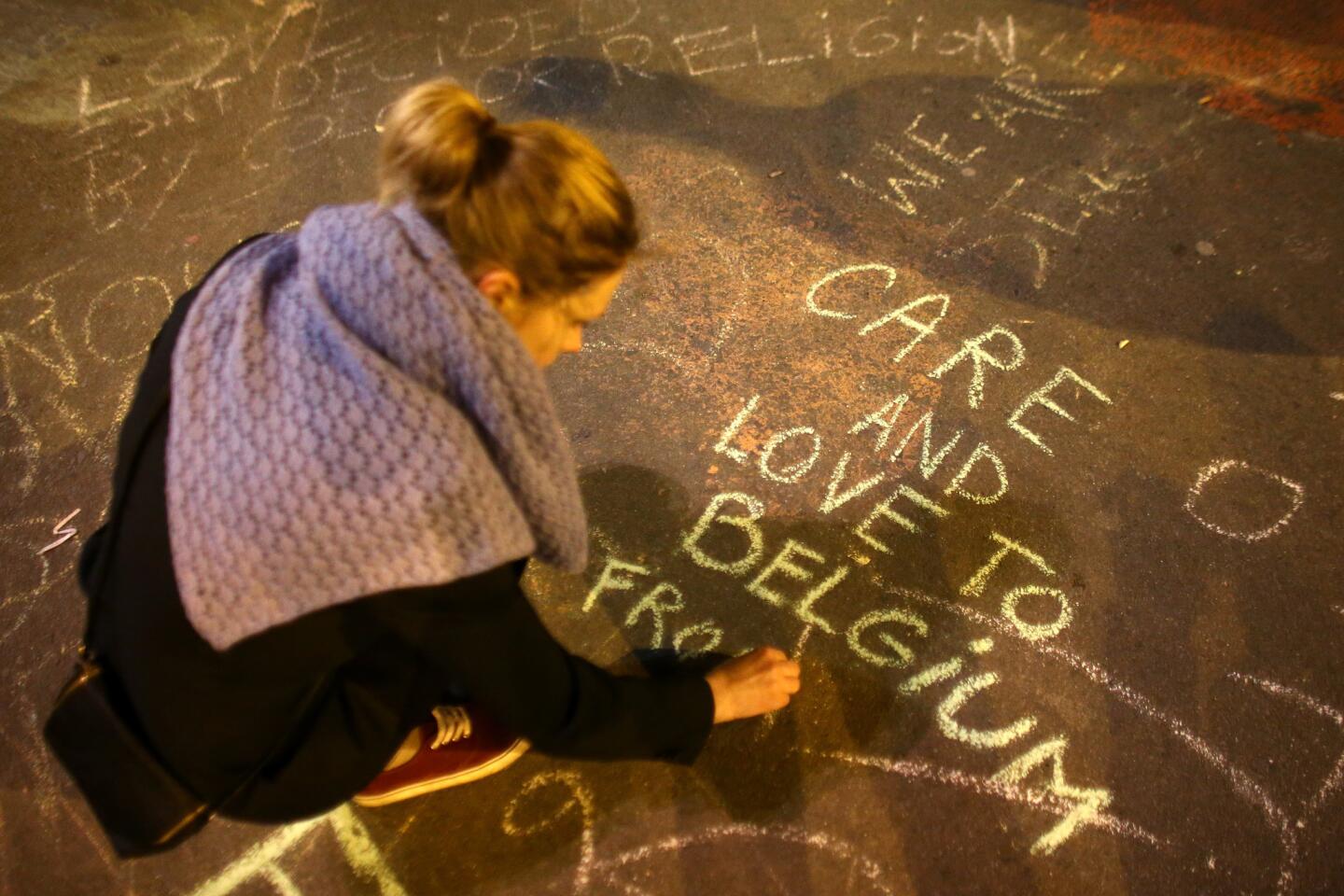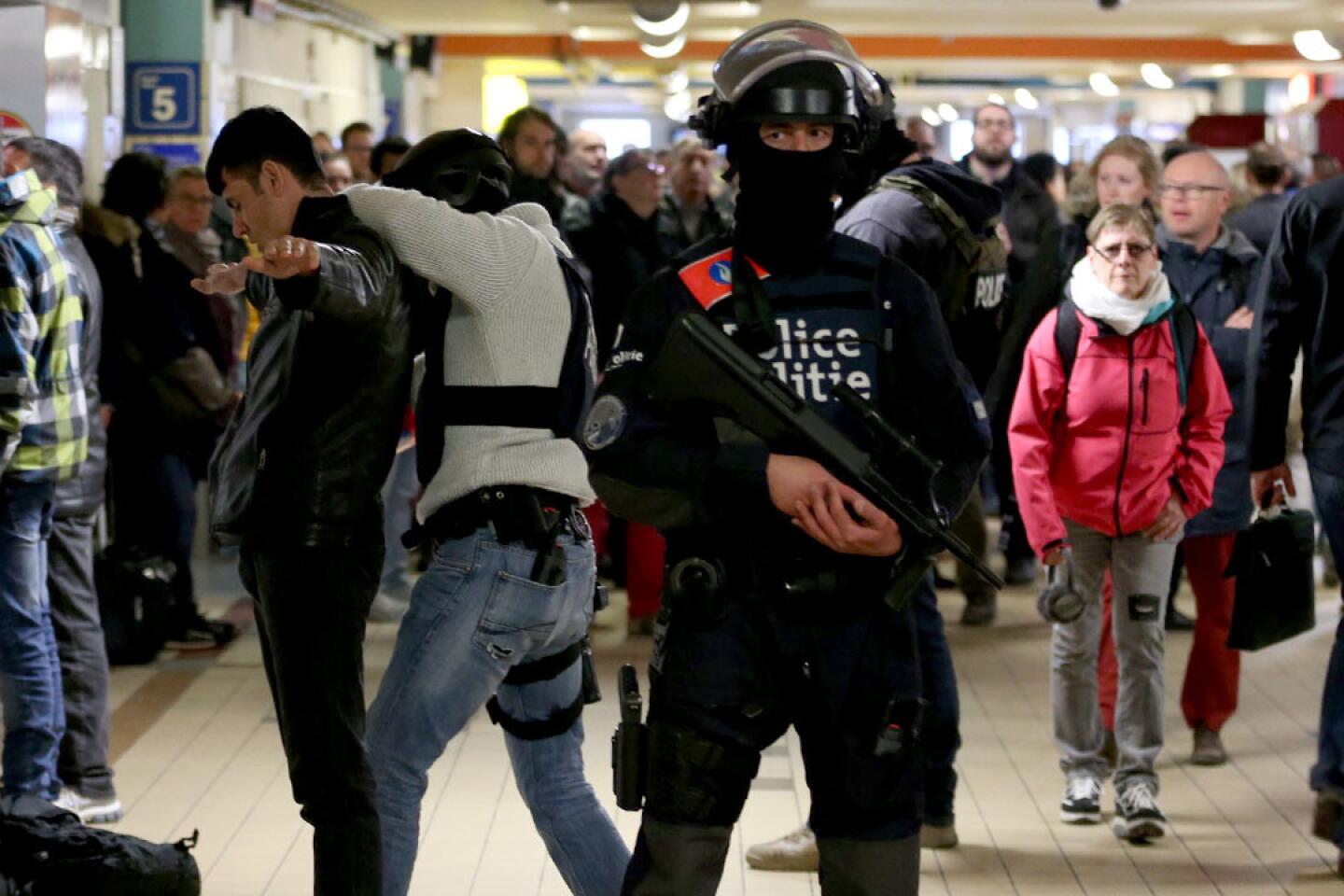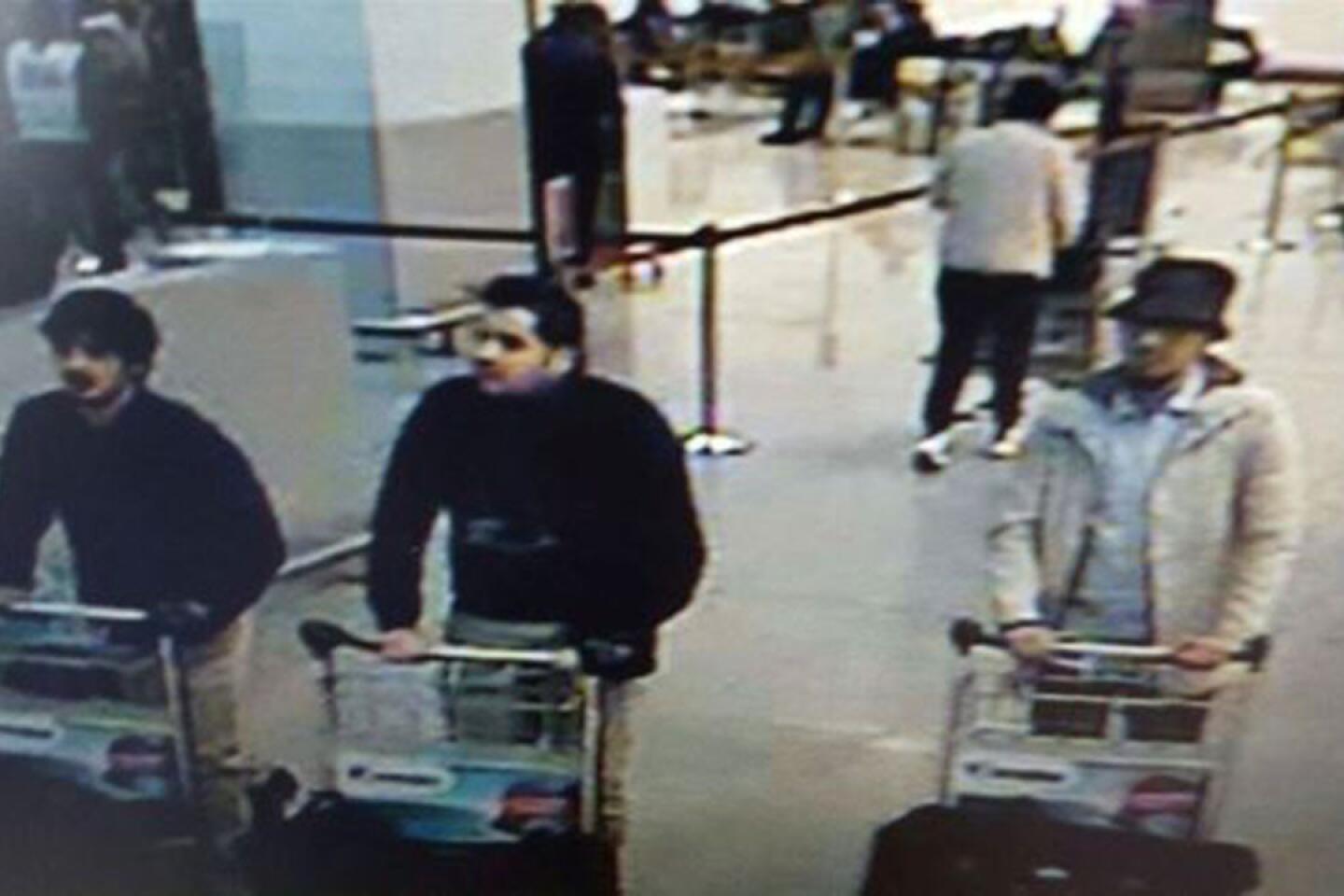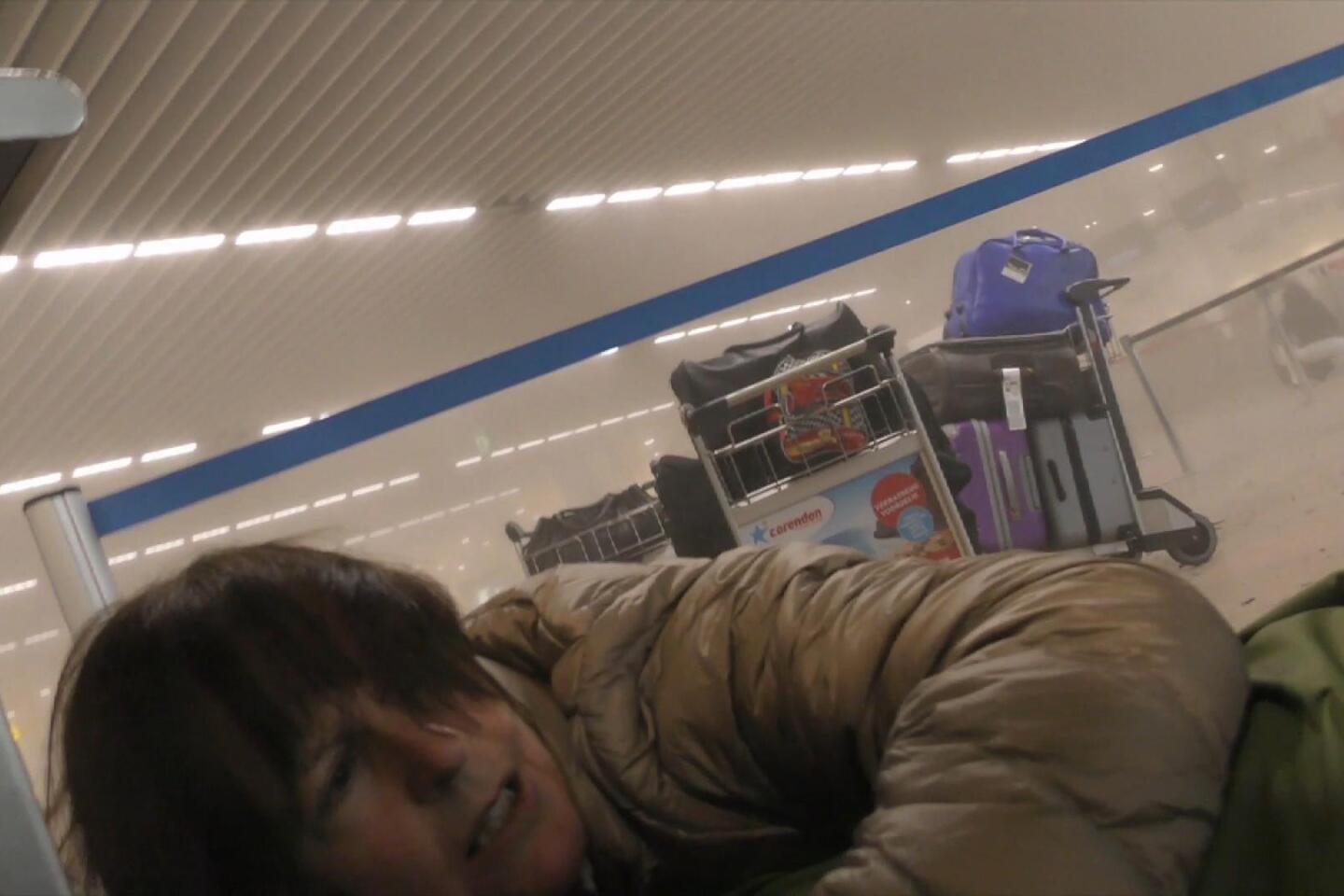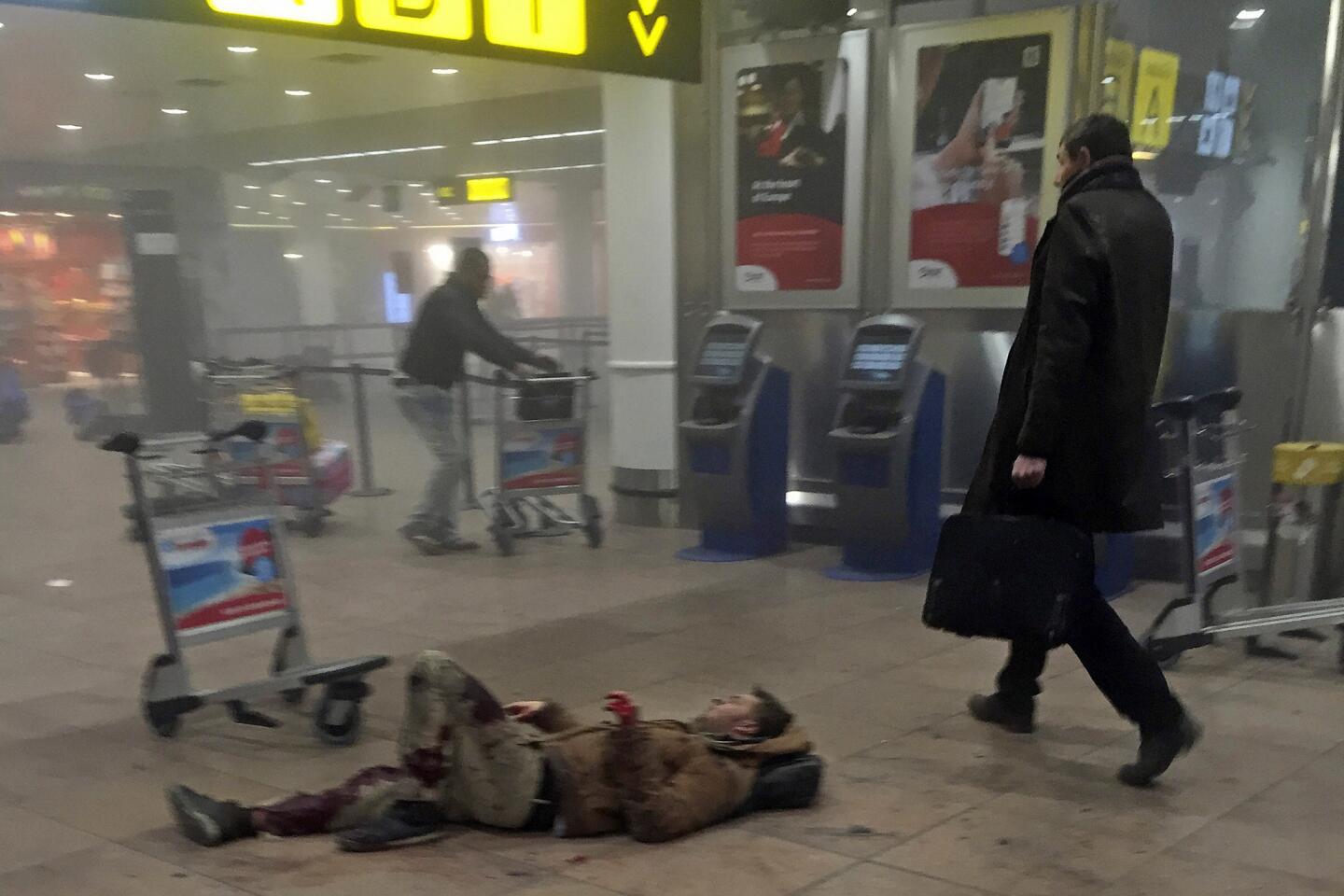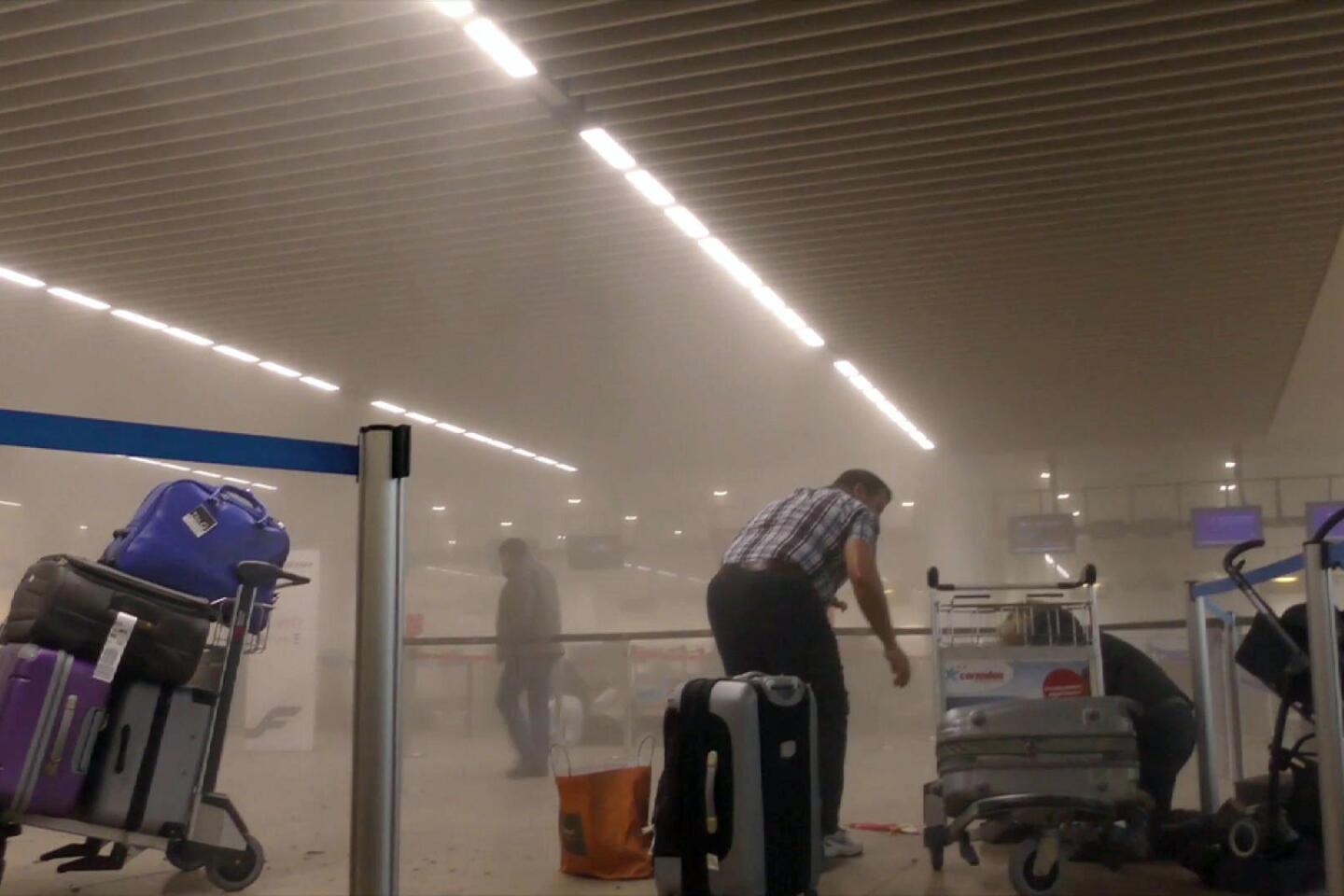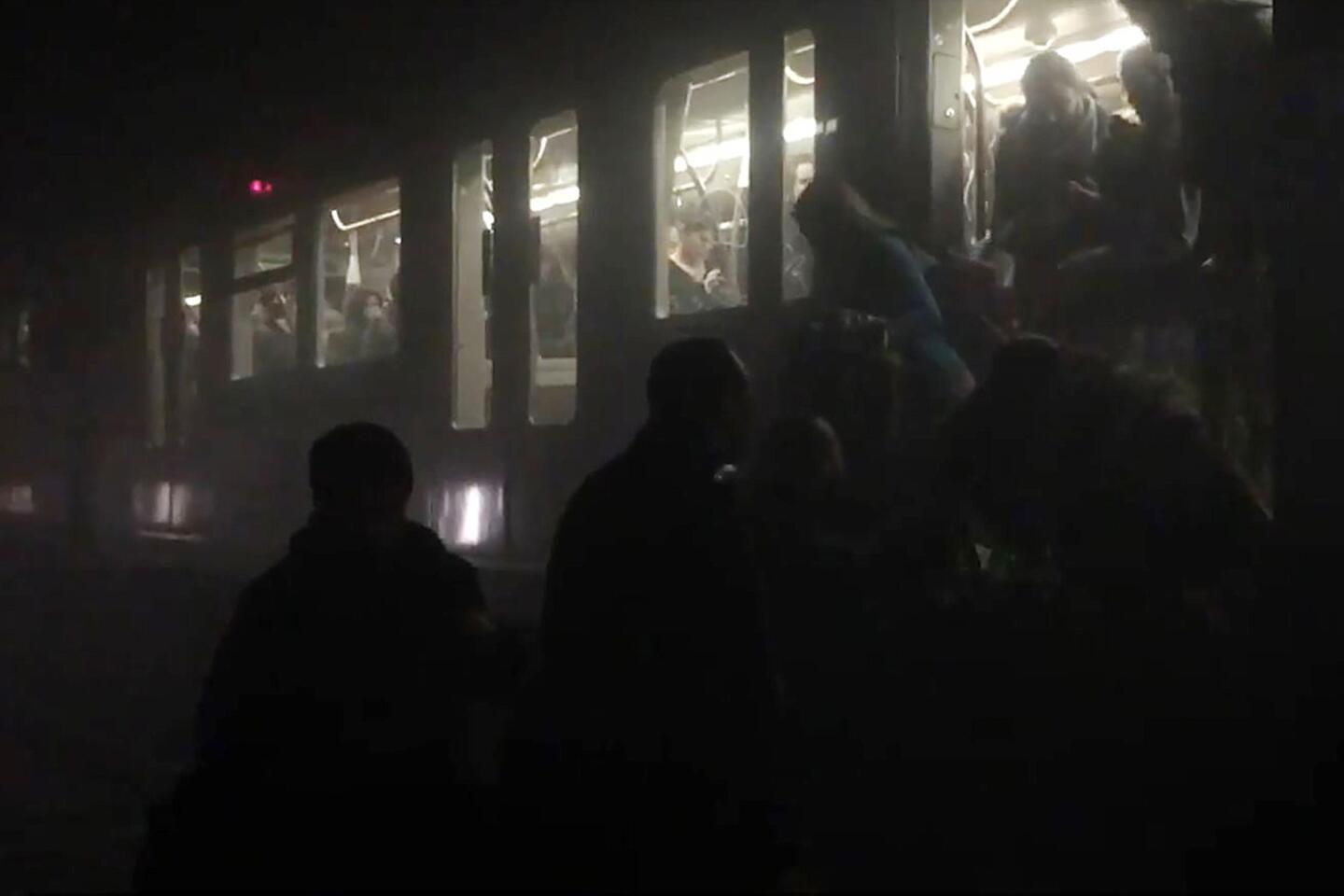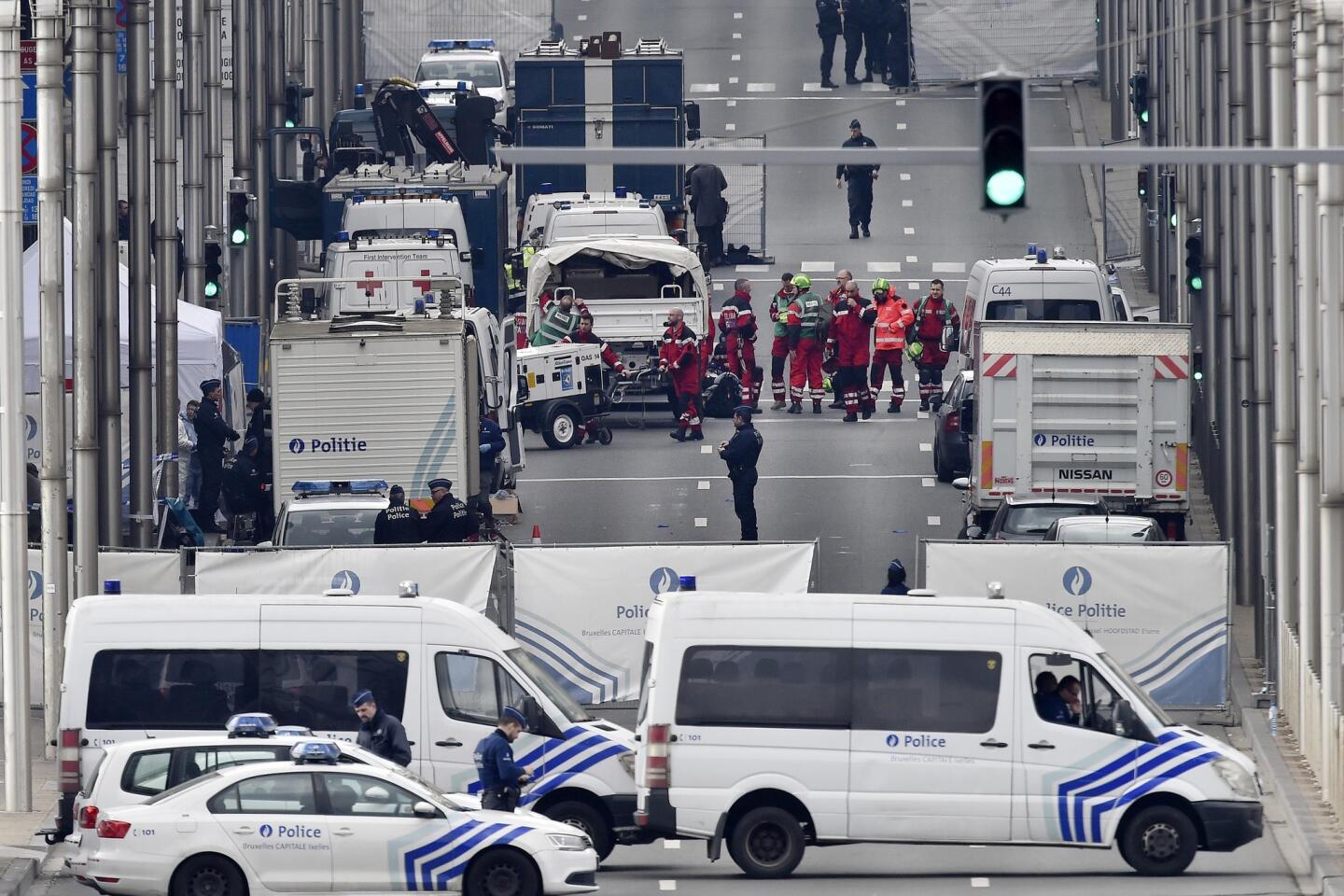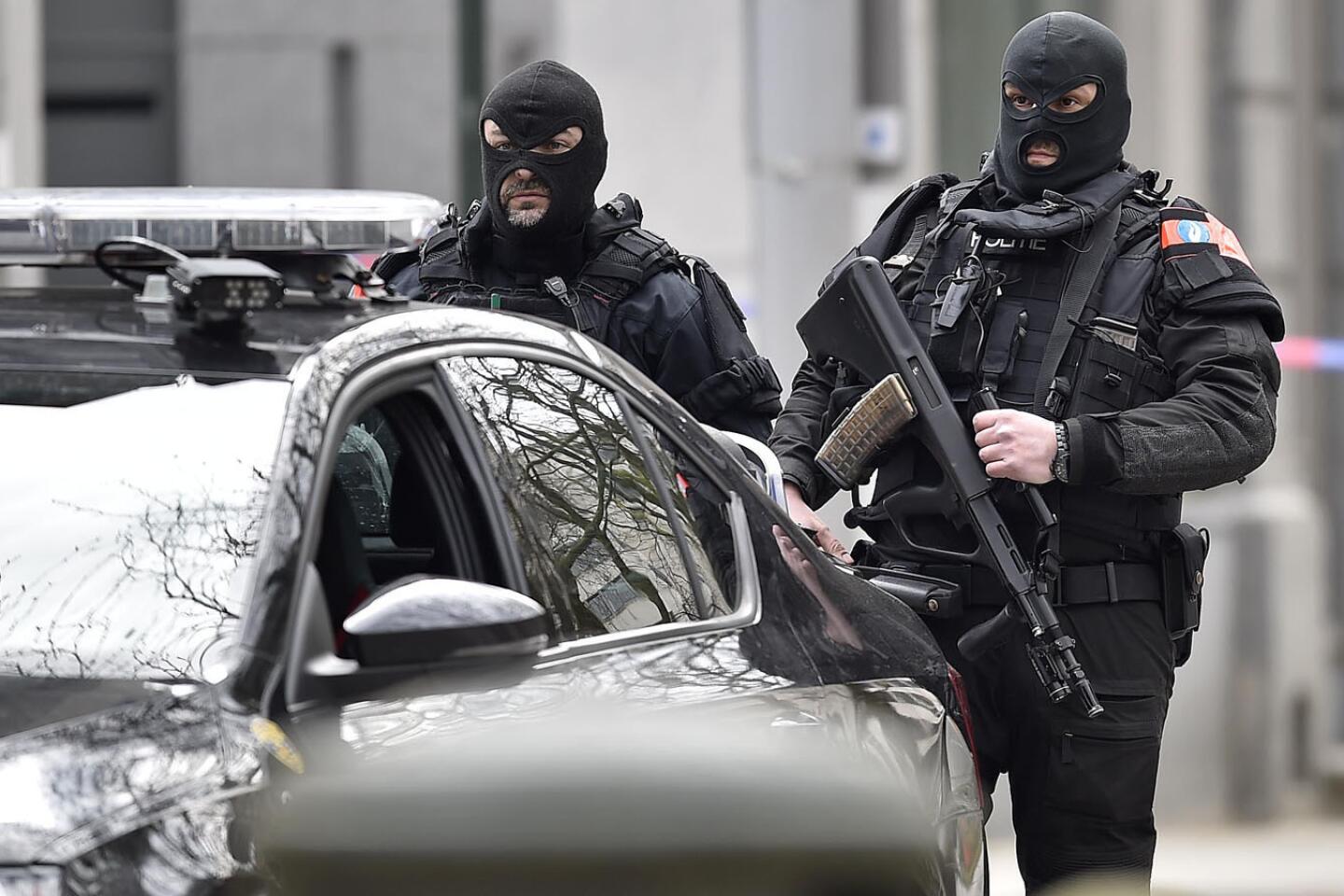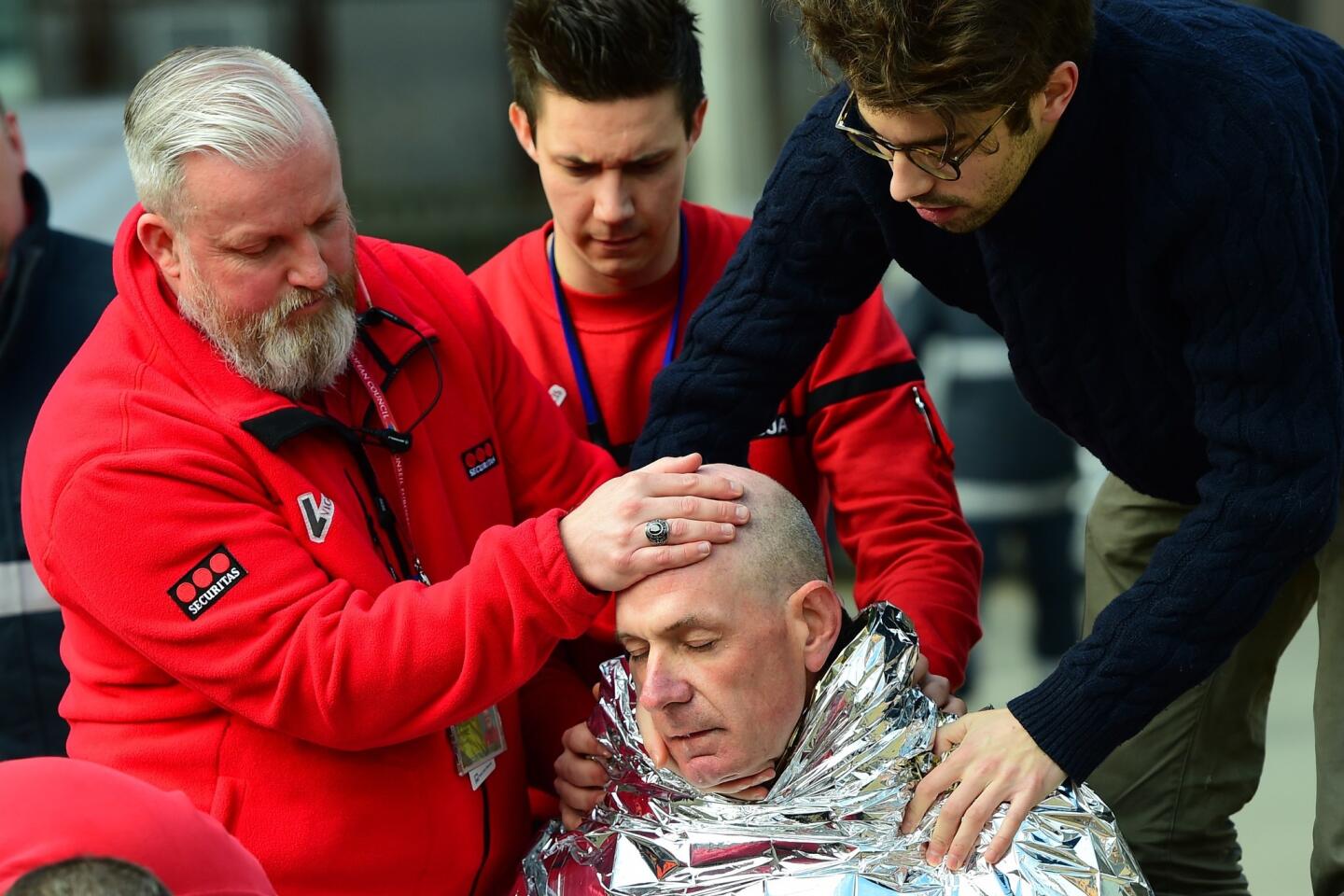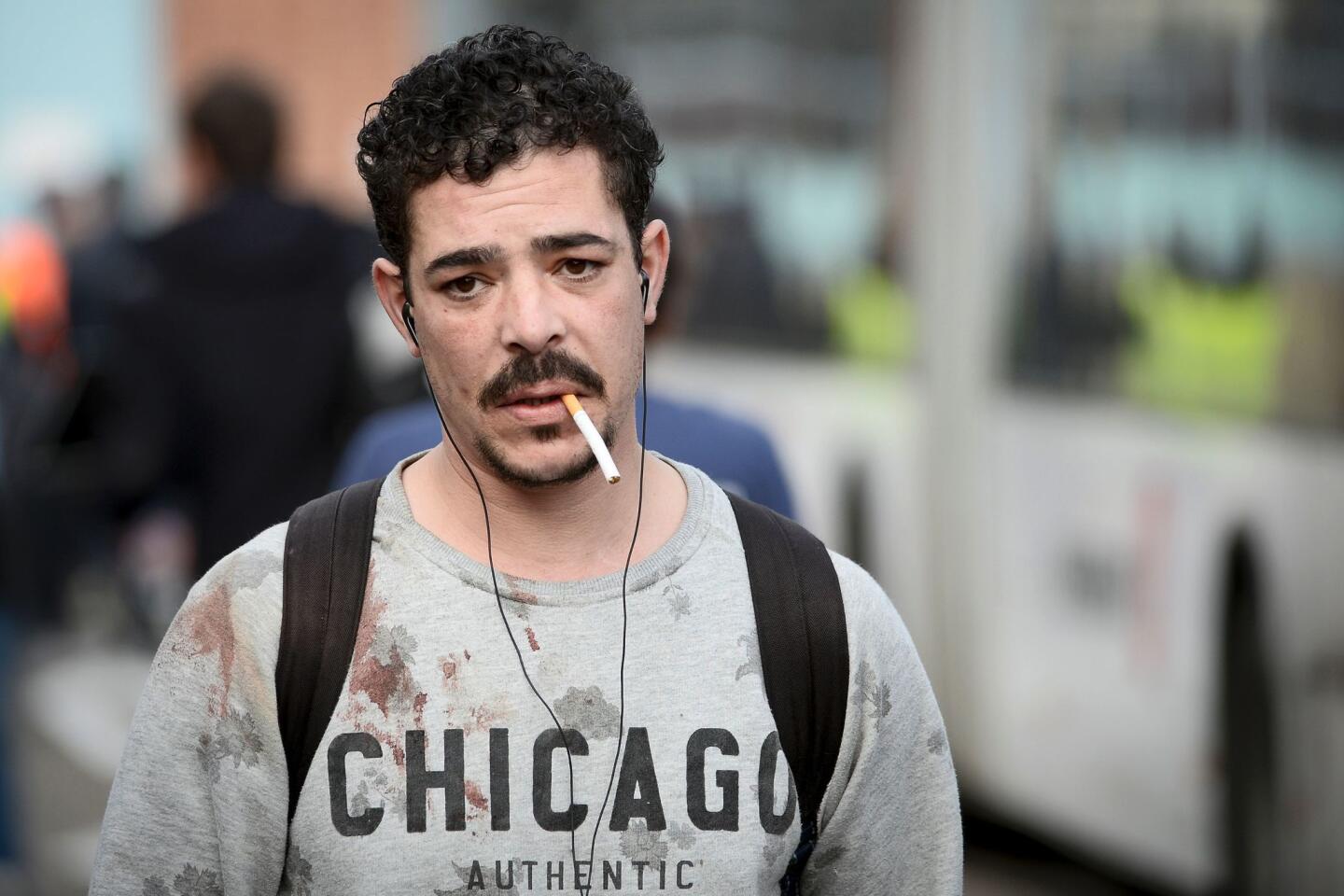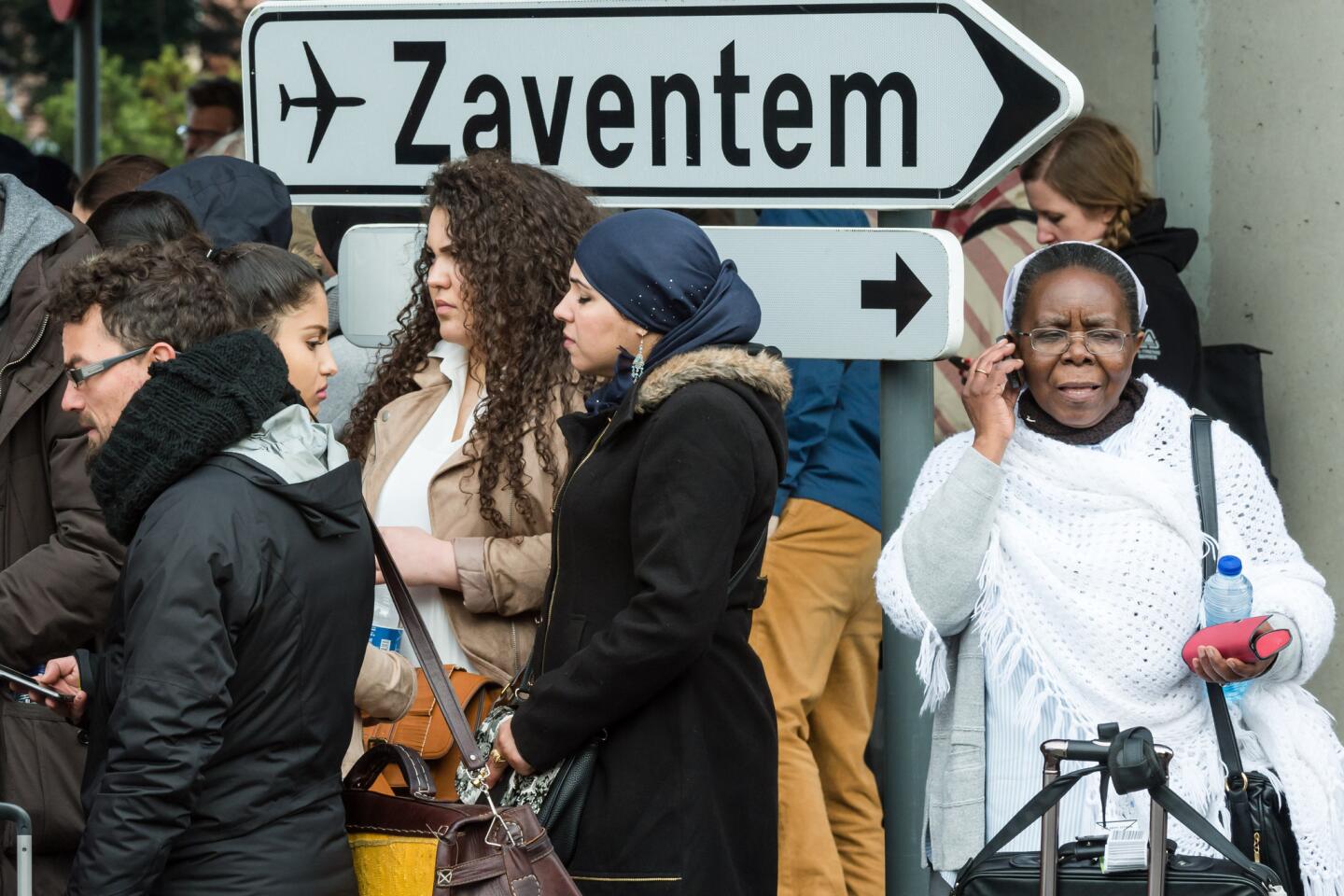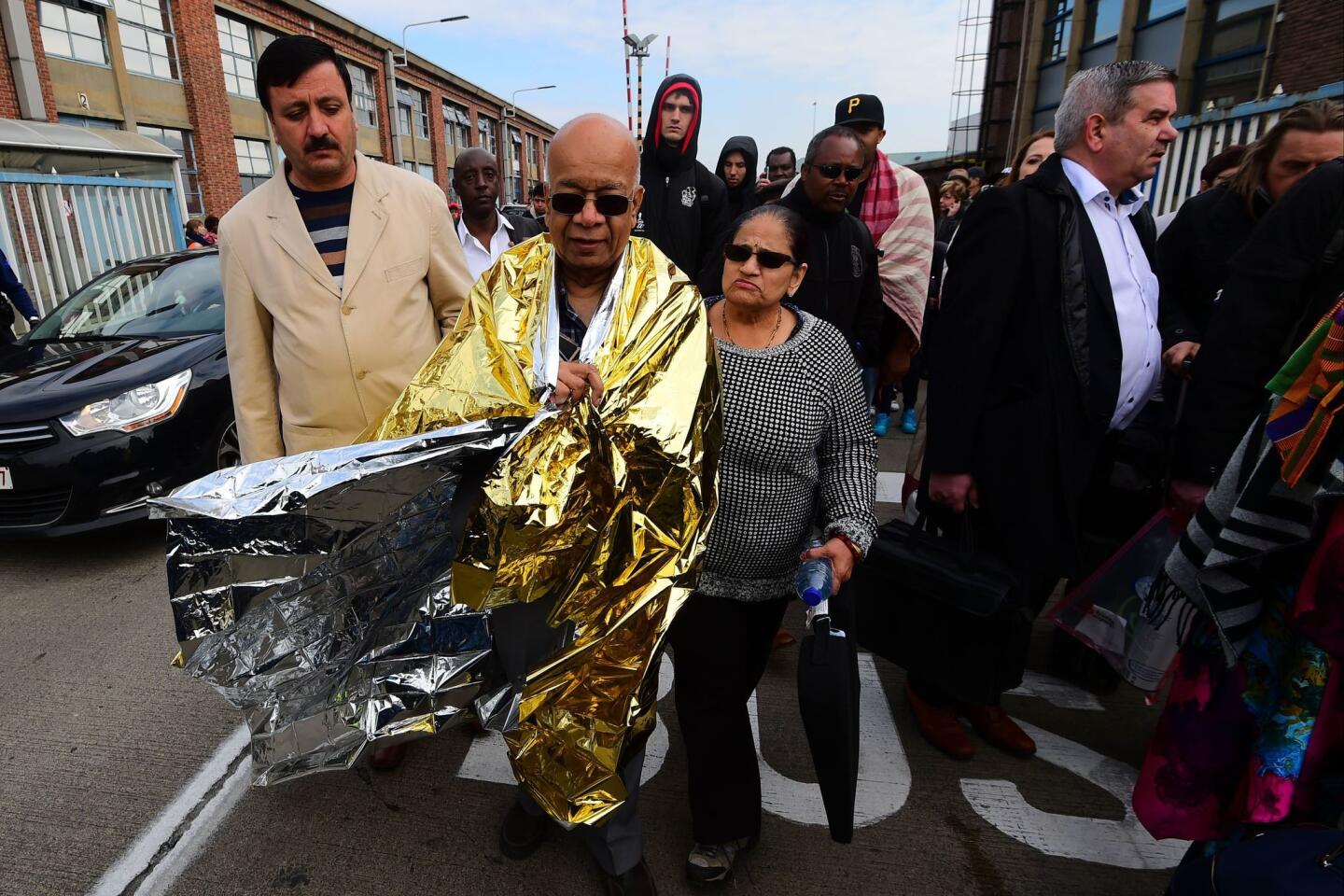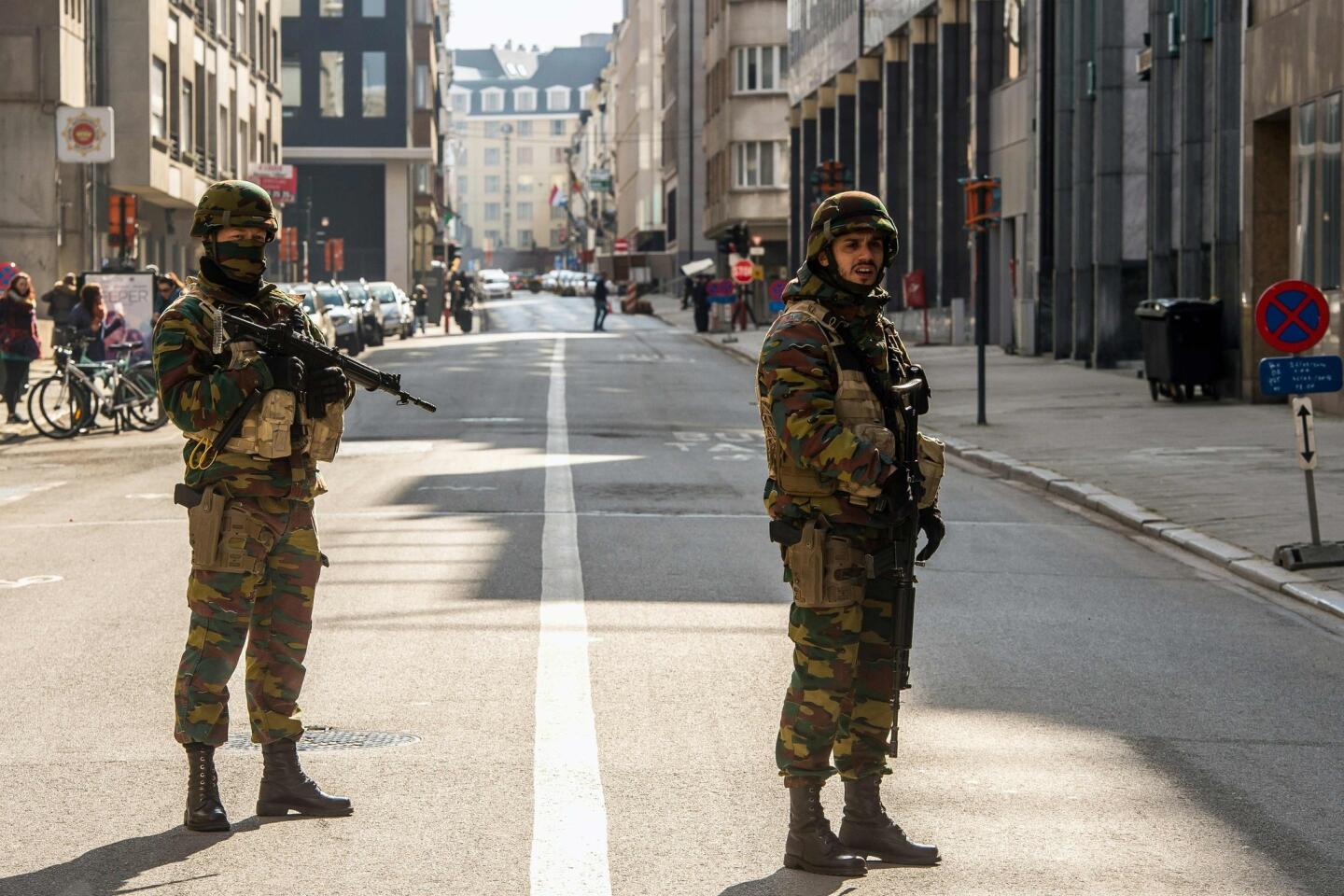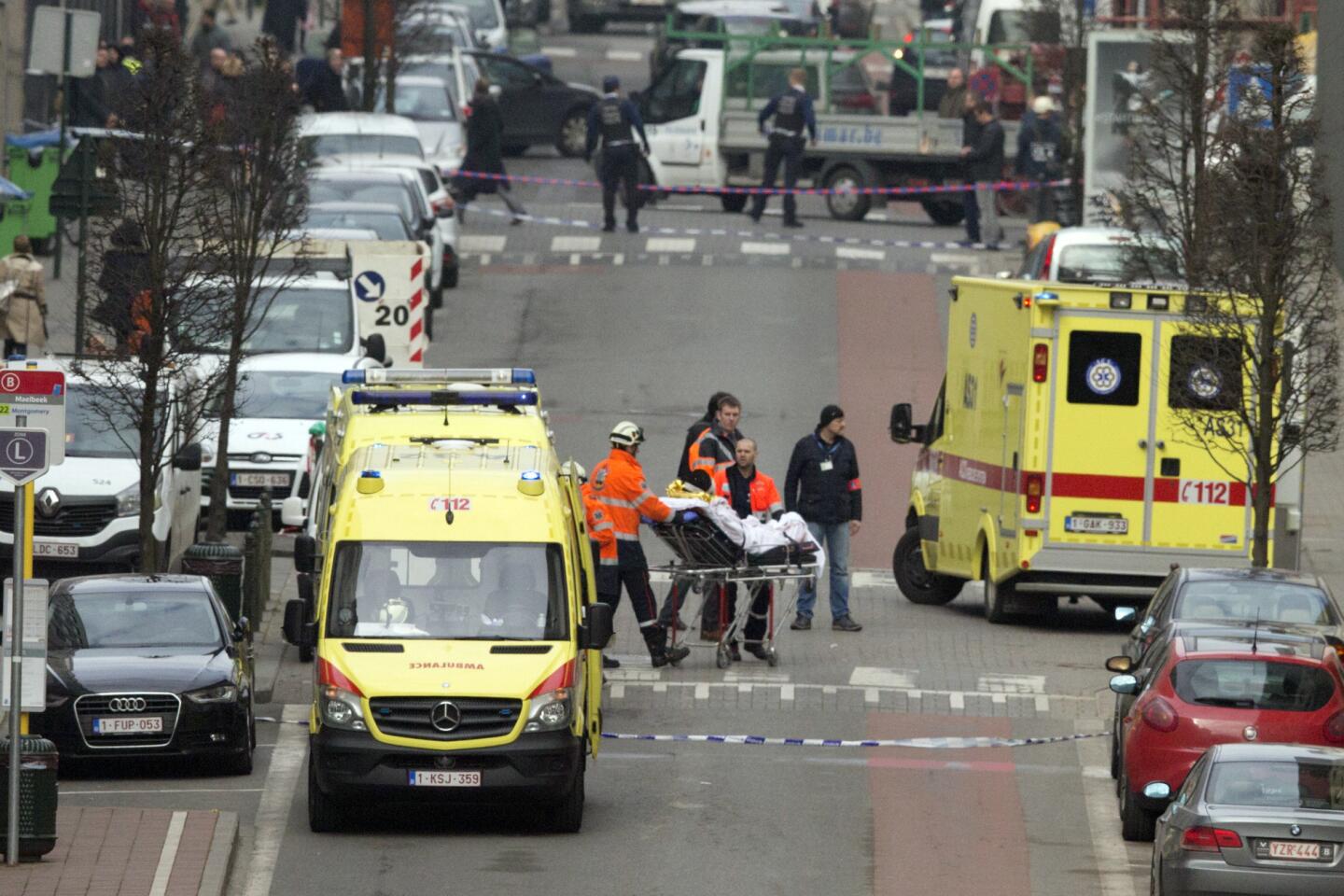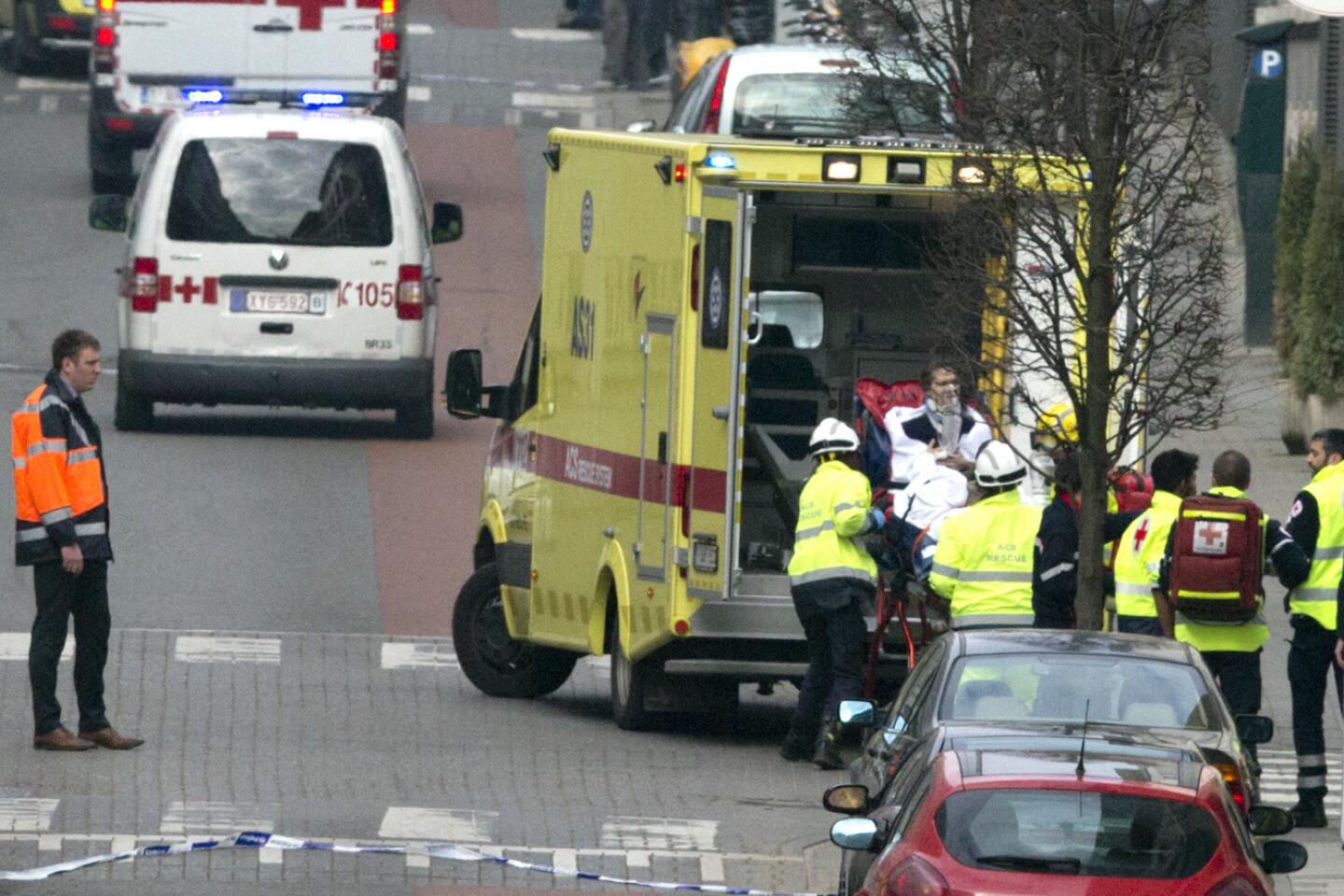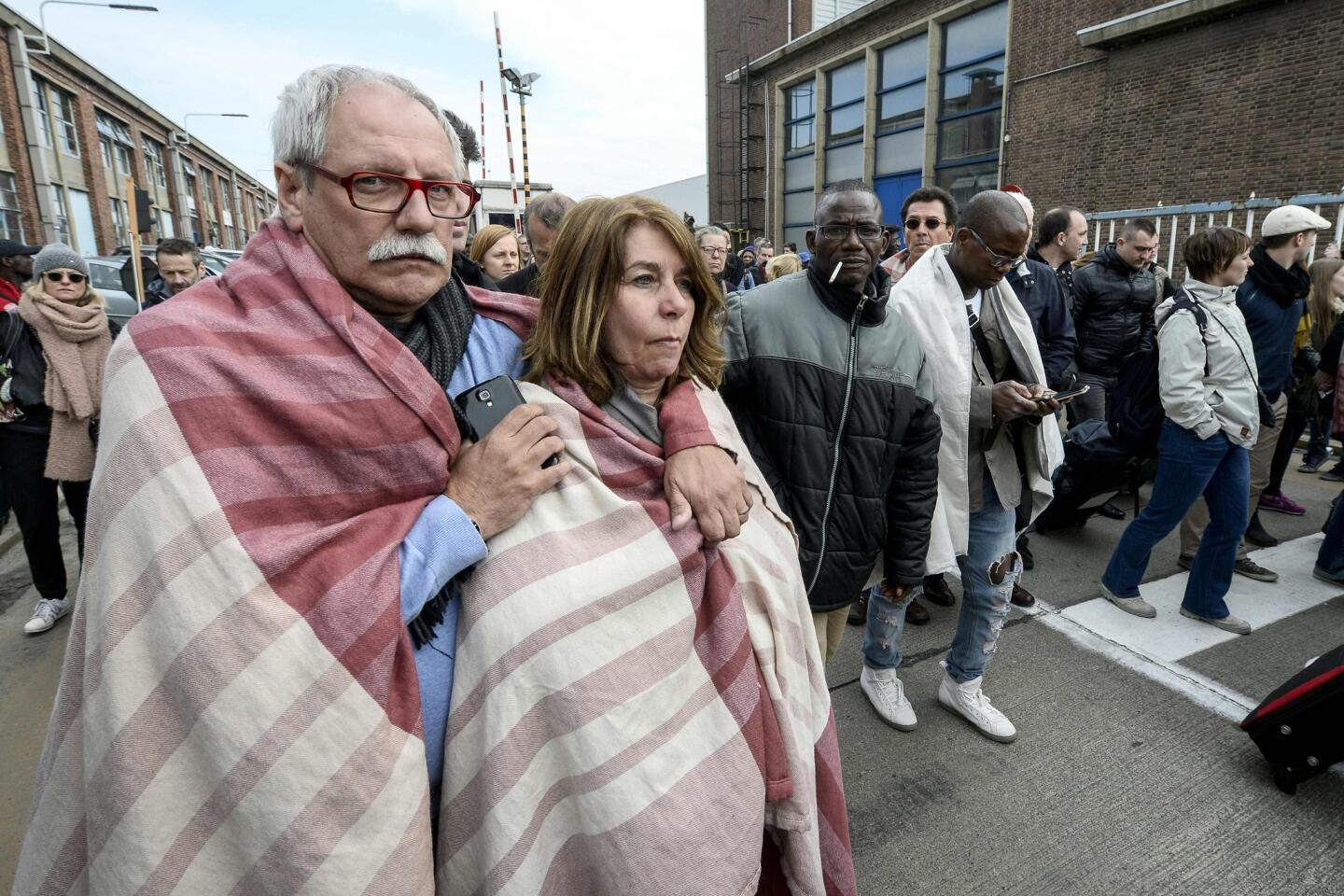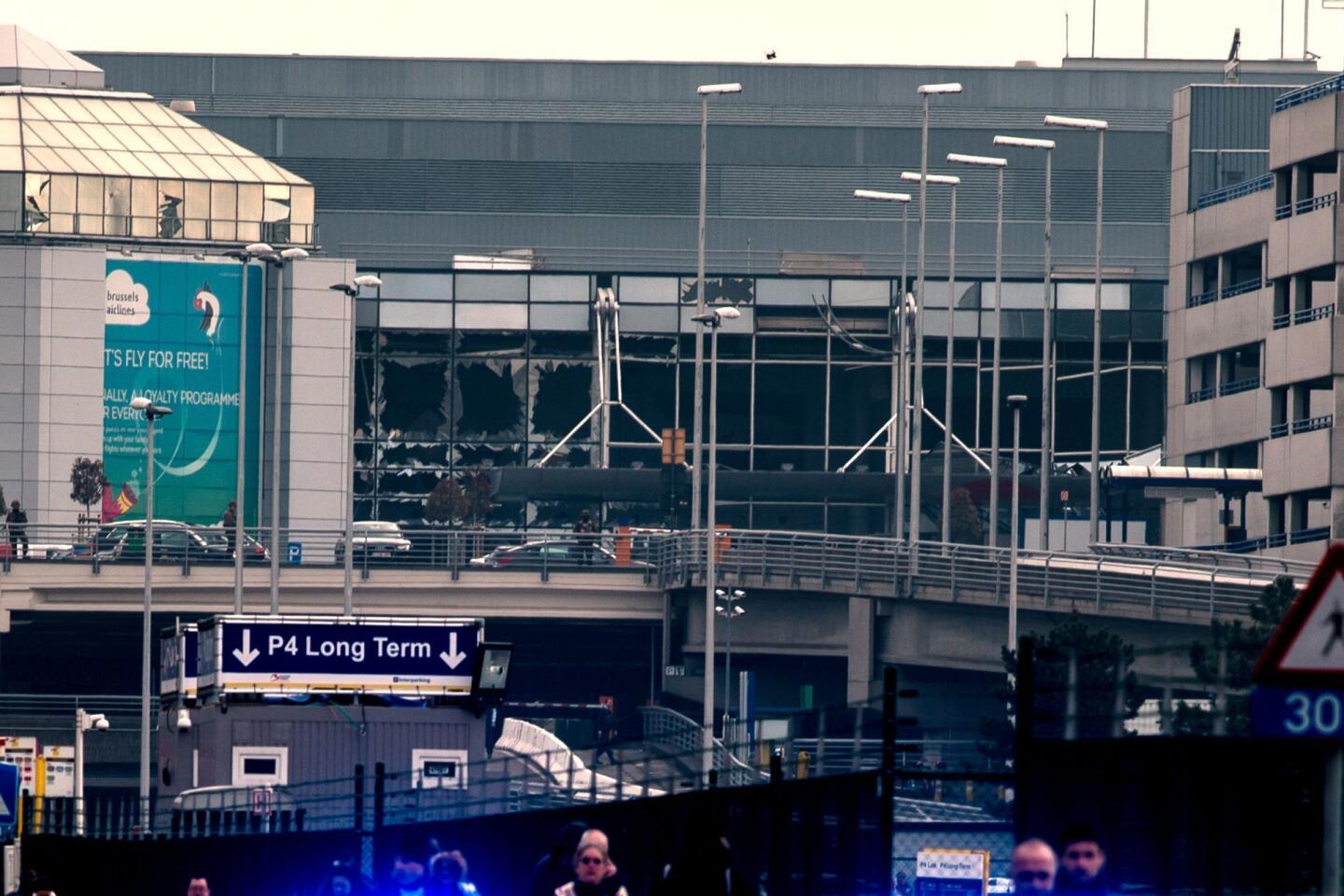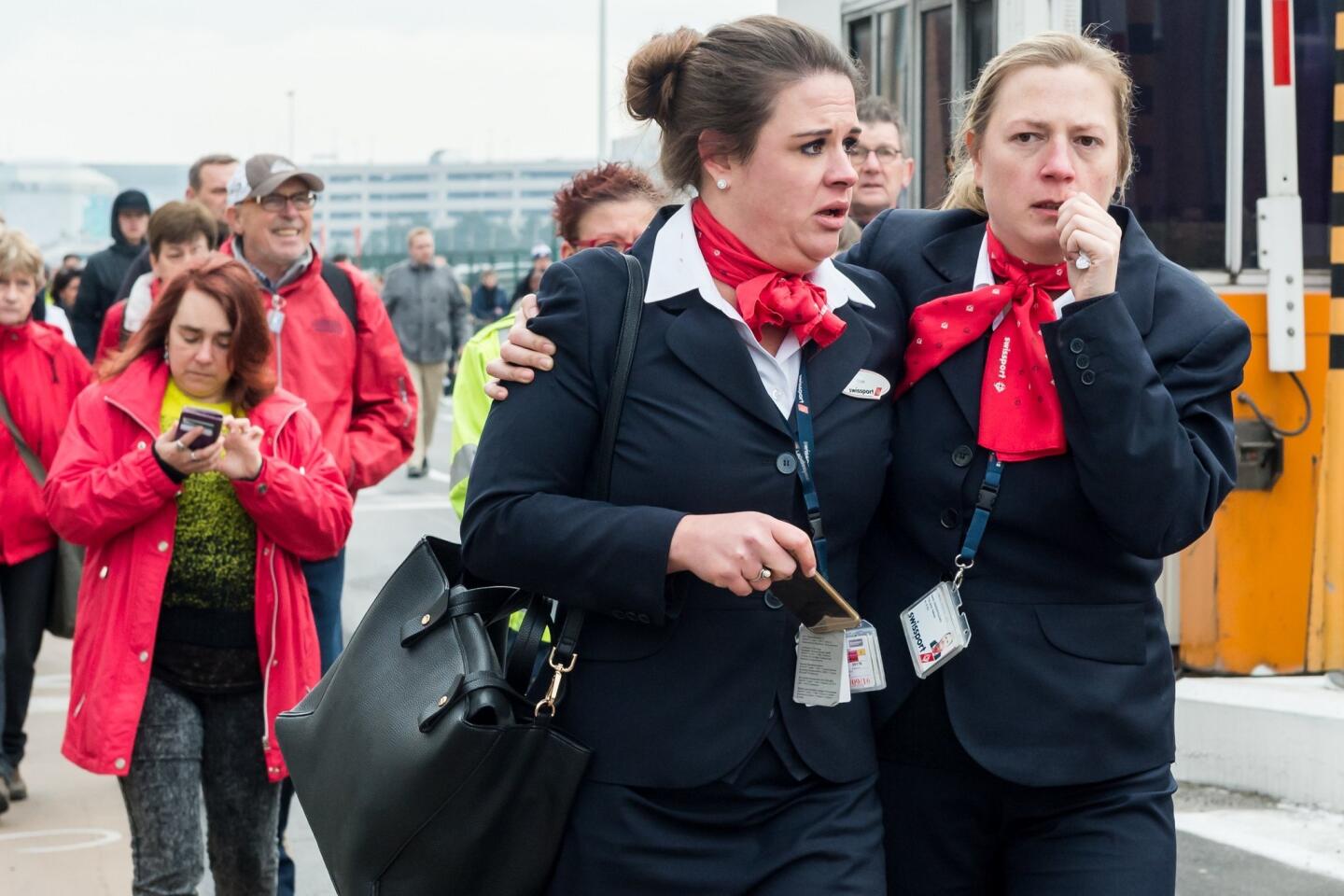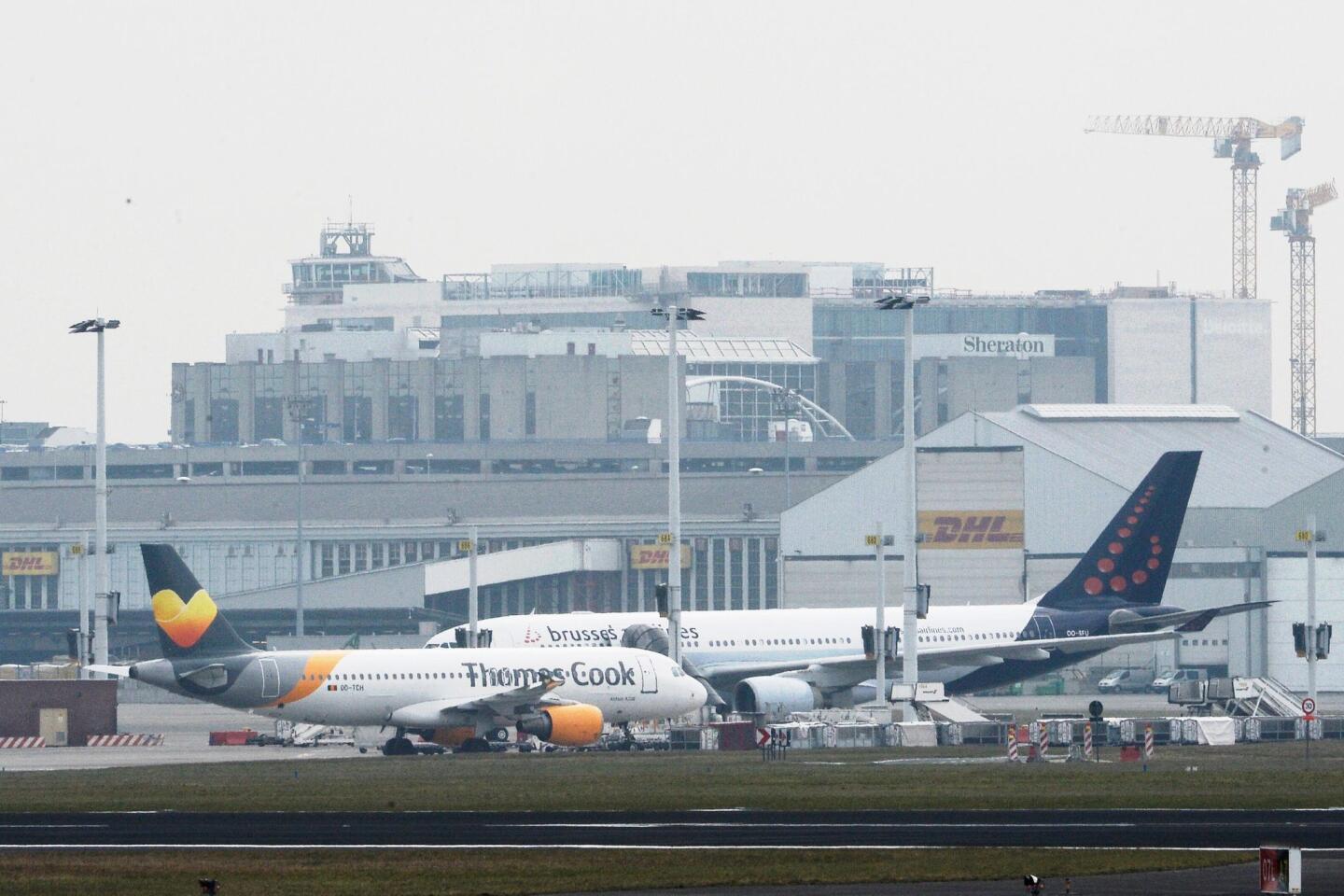Brussels suicide bombers fit familiar profile; links to Paris terrorist attacks seen
- Share via
Reporting from Brussels — The brothers fit what European anti-terrorism investigators call a disturbing but now-familiar profile.
They were young Belgian nationals of Moroccan descent, both with extensive criminal records involving violent crime and guns.
But neither had been previously linked to terrorism, Belgium’s chief prosecutor, Frederic Van Leeuw, said Wednesday at a news conference here.
The siblings — Brahim and Khalid El Bakraoui — were publicly identified Wednesday as two of the suicide bombers in attacks at an airport and on a metro train Tuesday that left 31 people dead and 260 injured, the latest terrorist strikes to stun a continent reeling from violent extremism.
They appear to have been members of a large militant cell with links to November’s attacks in Paris. A third suicide bomber is believed to have been a bomb maker suspected of involvement in the Paris attacks.
The brothers’ path from ex-convicts to Islamic militants and kamikaze killers remained obscure. But authorities have previously watched the radicalization process develop among embittered European youths in prisons and mosques, on the Internet and in clandestine sojourns to war-ravaged Syria.
LIVE UPDATES: The attacks in Brussels
On Wednesday, Turkish President Recep Tayyip Erdogan told reporters that Ankara had informed Belgian and Dutch authorities in July that one of the Brussels attackers — later identified as Brahim El Bakraoui — had been expelled as a foreign fighter from Turkey, the major crossing point for militants headed to Syria. There was no immediate response from Belgian or Dutch officials.
A day after the bombings at the airport and a metro station, the daytime mood here in the capital was generally somber as heavily armed soldiers and police patrolled the streets and transportation hubs. Under cloudy skies and showers, Brussels took on the feel of a town under siege. Residents expressed fears of future attacks. People waited in long lines to enter train stations amid new security precautions.
“It’s scary, but I think they [terrorists] are probably among us everywhere,” said Stephanie Taibu, 27, a banker who lives in the densely populated Schaerbeek district.
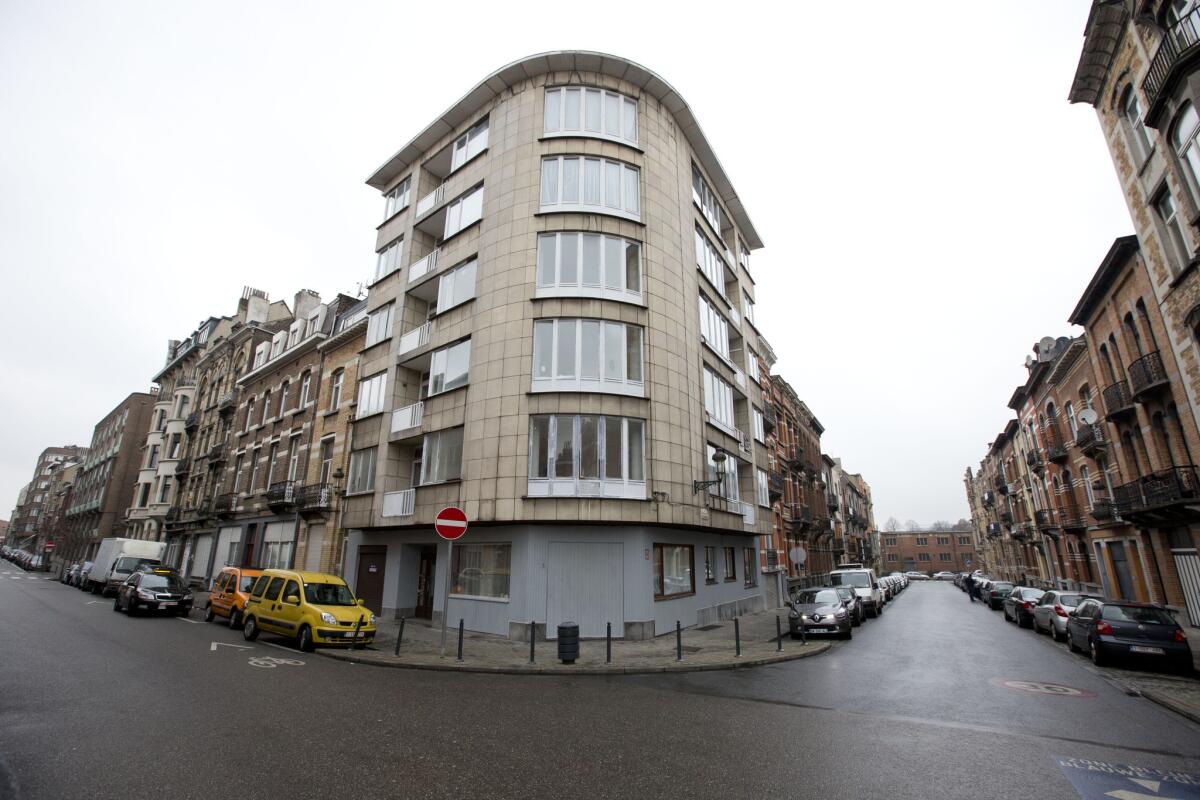
The apartment complex that was raided by police on Tuesday night.
On Tuesday, authorities raided a fifth-floor apartment in Schaerbeek linked to the attacks and discovered bomb-making material and the black flag of Islamic State, the Al Qaeda offshoot that took responsibility for the attacks.
“This doesn’t happen in Belgium,” said a still-disbelieving Taibu. “This happens on TV and in other countries like America.”
Throughout the capital, flags were at half-staff amid an official three-day mourning period.
New police raids were reported in various districts.
An unidentified fourth suspect who fled the airport, leaving behind a bag laden with nails and explosives, is now the target of a massive manhunt.
“It was like something in a movie,” said Jhon Jairo Valderrama, a Colombian immigrant describing the scene on Tuesday as police swept in on the flat next to his apartment on Rue Max Roos in Schaerbeek.
The apartment targeted by police is where authorities discovered bomb-making materials and the militant flag. Residents said the occupants had kept to themselves in what was apparently a safe house rented a month or so ago in preparation for Tuesday’s attacks. No one here seemed to know anything about the shadowy renters of the flat.
The Brussels attacks and the Paris terrorist strikes appear to involve many such safe houses. The practice is an example of the perpetrators’ skill at terror tradecraft, investigators say.
“Suddenly we discover that terrorists were living next door to us and making bombs,” said a stunned Valderrama, an out-of-work theologian who resides in the apartment with his wife and two teenage daughters.
“My family doesn’t want to live here anymore,” he told a gaggle of journalists gathered outside the apartment building. “Who would ever imagine something like this here in Brussels?”
Leading police to the Schaerbeek flat, Belgian authorities said, was a taxi driver whose small car may have inadvertently saved many lives. After the attacks, officials said, the cabbie came forward and said he had taken three men — apparently the assailants — lugging heavy bags to the airport from Schaerbeek.
“Perhaps I had two or three terrorists in my taxi. I need to tell somebody,” he told police, the Belgian chief prosecutor recounted to reporters Wednesday.
The driver said the men sought to stuff more bags into the taxi but were able to fit only three. The suitcase they left behind in the apartment contained the heaviest load of explosives, the prosecutor said.
In a waste bin at the flat, investigators said, they found a laptop containing a kind of last testament from Brahim El Bakraoui.
“I don’t know what to do, I am in a hurry,” read the declaration. “I am on the run. People are looking for me everywhere. And if I give myself up, I will end up in a cell.”
Fingerprints and DNA evidence were used to identify the two brothers, authorities said.
Brahim El Bakraoui, 29, was captured on surveillance video as he walked through the departure terminal at Brussels Airport shortly before the 8 a.m. explosion there. He was flanked by two men, all pushing luggage trolleys, in a security camera image released by officials. A separate bombing on a train at the Maelbeek metro station was the work of 27-year-old Khalid El Bakraoui, the prosecutor said.
According to news accounts here, the brothers had served time after being convicted in connection with violent crimes unrelated to terrorism.
Khalid El Bakraoui was sentenced to five years in prison for his part in an armed car-jacking, Belgian media reported, and Brahim El Bakraoui received a nine-year sentence in 2010 for participating in an armed robbery during which a police officer was injured. It was unclear why Brahim El Bakraoui was released before completing his term.
Various connections are emerging between the Brussels attacks and the Nov. 13 strikes in Paris that killed 130 and injured hundreds, authorities say. In Paris, teams of Islamic State operatives with links to Belgium and Syria struck at cafes and a music hall. Much of that operation may have been planned in Brussels, authorities say.
Authorities in Belgium have not confirmed news reports that the second suicide bomber at the airport was Najim Laachraoui, a suspected bomb maker linked to Salah Abdeslam, the alleged logistics chief of the Paris killings. Abdeslam, a fugitive for four months, was arrested last week in Brussels’ now-notorious Molenbeek district, where many young Belgians of Moroccan descent have become radicalized and traveled to Syria for jihad.
But a U.S. official confirmed Wednesday that Laachraoui was one of the suicide bombers at Brussels Airport. “We have no reason to doubt” reports that he was killed, the official said.
Laachraoui’s DNA has been linked to explosives used in the Paris rampage, said the official, who spoke on condition of anonymity in discussing internal assessments. Laachraoui’s exact role in producing the Paris bombs is unclear, the official added, and he may not have been the only bomb maker in the cell.
One theory circulating here is that Abdeslam’s arrest, and reports that he was cooperating with authorities, may have prompted attackers to speed up plans. Reports that a terrorist plot was targeting Brussels had been circulating for months.
The bombings shocked this staid and stately city, which in effect serves as the capital of the new Europe. But residents have demonstrated a resilient spirit, with more than 1,000 gathering late Wednesday in central Brussels’ Place de la Bourse to sing songs, reflect on the attacks and insist that terrorism would not damp their spirits.
“We’re from Brussels and we all live here and we think this is important,” said Christine, 36, a member of a choir called Stemmer whose members were singing songs about Brussels and Belgium; she declined to give her last name. “We’re proud of our city.”
Just a few dozen yards away, near the stock exchange building, another group of young people was sitting around a guitar player singing rock tunes in French. The heavily armed soldiers who guarded the area Tuesday were nowhere to be seen.
“We’re just a little country,” said Sael Menteges, 21, a travel agency worker wearing a sign reading “free hugs,” mimicking similar signs seen in Paris after the November attacks.
“I’ve never seen so much solidarity in Brussels,” Menteges, said. “We are just part of one single humanity tonight. We are just one. We’re not Arabic or Muslim or Christian. We’re just one people.”
Jamal Sahi, 40, an engineer who came from Morocco 13 years ago, agreed.
“We’re not going to stop our way of life because of these stupid terror attacks,” said Sahi, voicing a widely shared sentiment. “People have to show that life is going to continue here and that’s really good.”
Kirschbaum is a special correspondent. Contributing to this report were Times staff writers Brian Bennett in Washington and Corina Knoll in Los Angeles and special correspondents Sheldon Chad in Brussels and Christina Boyle in London.
MORE ON THE TERRORIST ATTACKS IN BRUSSELS
What we know about the Brussels attacks
Op-Ed: Did the capture of a terrorist in Brussels prompt the attacks?
Brussels terrorist attacks put a heavily Muslim district and Belgium’s police under scrutiny
More to Read
Sign up for Essential California
The most important California stories and recommendations in your inbox every morning.
You may occasionally receive promotional content from the Los Angeles Times.
